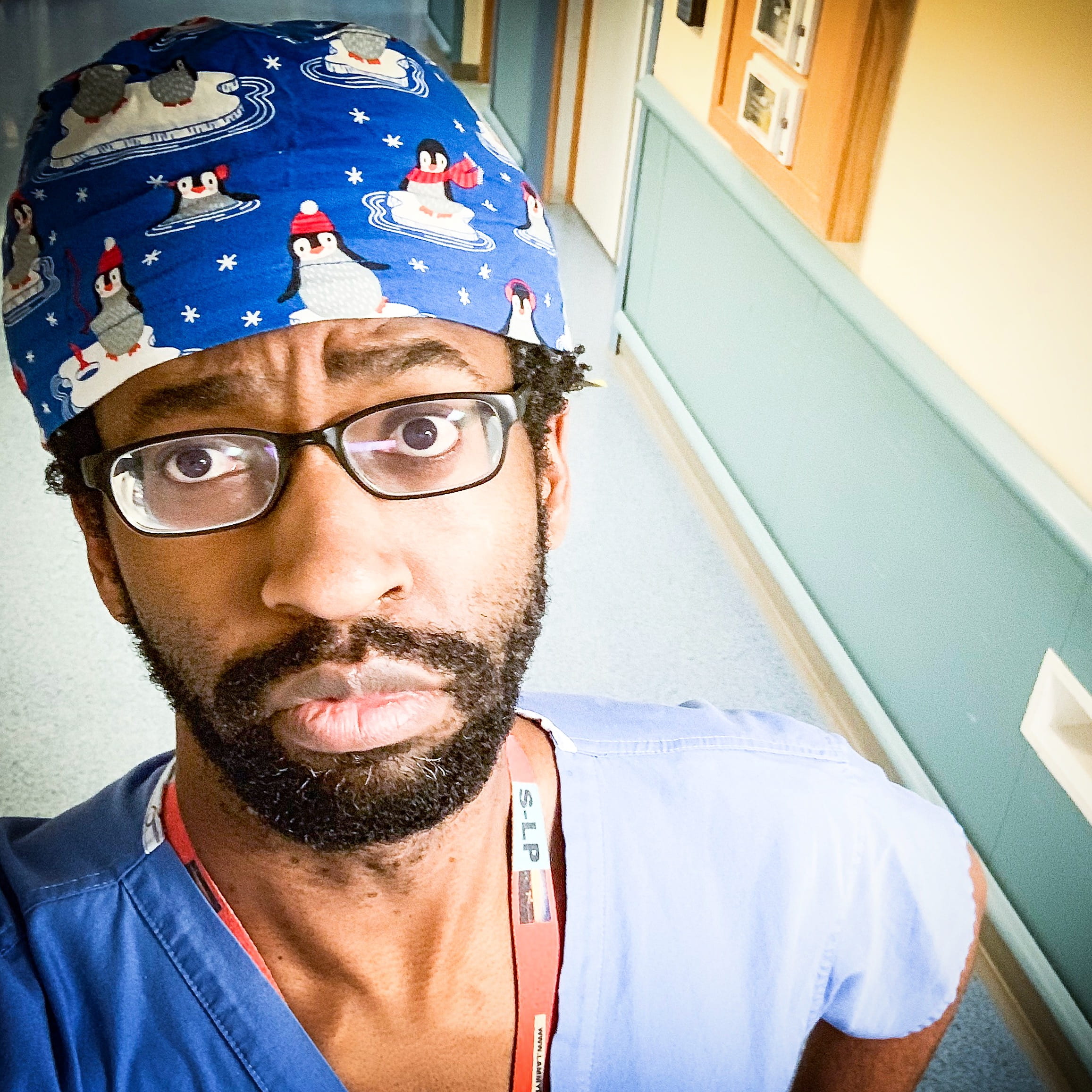Neurosurgery Fellowships
RCS England Senior Clinical Fellowships in Neurosurgery
This page includes a list of the Neurosurgery Fellowship programmes which have been approved under the RCS Senior Clinical Fellowship Scheme and a gallery of recent neurosurgery fellows.
Applying to be a Fellow
Candidates who are interested in these fellowship programmes are required to apply through the NHS Trust jobs website. For more information, please visit our recruitment section or contact the QA Department: qa@rcseng.ac.uk
Fellows appointed to RCS Senior Clinical Fellowships will be expected to be ambassadors for RCS England and meet the requirements of the GMC’s Good Medical Practice.
- Epilepsy Fellowships
- Functional & Epilepsy Fellowships
- Functional Neurosurgery Fellowships
- Hydrocephalus Fellowships
- Neuro-oncology Fellowships
- Neurosurgery Spine Fellowships
- Neurotrauma Fellowships
- Neurovascular Fellowships
- Pituitary Fellowships
- Skull Base Fellowships
- Comments from recent Fellows
Epilepsy Fellowships
NHNN Complex Epilepsy Fellowship
Based at: National Hospital for Neurology and Neurosurgery, University College London Hospitals NHS Foundation Trust
Surgical Specialty Association approving: SBNS
Approval period: May 2020–April 2023; reapproved September 2023–August 2026
Supervisor/Lead Consultant: Ms Anna Miserocchi, Consultant Neurosurgeon, and Prof Andrew McEvoy, Professor of Neurosurgery
Fellowship duration: 12 months
Stated learning outcomes:
- Understanding the relevance of the MDT approach and the results of different investigations.
- Becoming independent in temporal lobe resections, vagal nerve stimulator implantation, implantation of electrodes, extratemporal resections, vagal nerve stimulator implantation, implantation of electrodes, extratemporal resections.
- Becoming independent in safely planning Stereo EEG.
- Being able to set up and perform awake craniotomies.
- Being able to operate in the interventional MRI.
Clinical competencies to be achieved:
- Patient selection for epilepsy surgery.
- Becoming independent in performing the most common epilepsy surgical procedures.
- Becoming independent in performing awake craniotomies and operating in iMRI.
- Perioperative care of patients undergoing epilepsy surgery.
The number of main operations the fellow could expect to be involved in:
- Temporal lobe resection (Performed: 20)
- Vagal nerve stimulator and maintenance (Performed: 30)
- Implantation of electrodes (grids/seeg) (Performed: 30)
- Extratemporal resections (Performed: 10)
- Awake craniotomies (Performed: 10)
Fellows awarded Fellowship Certificate (dates of Fellowship):
- Cameron Elliott (Jul 20–Jul 21)
- Roisin Finn (Aug 21–Aug 23)
- Aimun Jamjoom (Aug 23 - Aug 24)
- Ruichong Ma (Aug 24 - Aug 25)
Functional and Epilepsy Fellowships
Walton Functional and Complex Epilepsy Fellowship
Based at: The Walton Centre for Neurology and Neurosurgery NHS Foundation Trust, Liverpool
Surgical Specialty Association approving: SBNS
Approval period: August 2020–July 2023, reapproved January 2024–December 2026
Supervisor/Lead Consultant: Mr Jibril Osman-Farah, Consultant and Lead Functional Neurosurgery, with Ms. Deepti Bhargava, Consultant Functional Neurosurgeon
Fellowship duration: 12 months
Stated learning outcomes:
Knowledge and understanding: Understands the anatomic and physiologic substrates of movement disorders, pain, spasticity and epilepsy, the science behind Neuromodulation for movement disorders and pain, and understands epilepsy networks. Evaluates the benefits and risks of Deep Brain Stimulation, Spinal Cord Stimulation and surgery for epilepsy. Critically appraises relevant literature.
Practical (Clinical and Technical) Skills: Formulates sensible management plan in clinic and wards, including patient selection for surgery; troubleshoots any post-operative issues; effectively participates in MDT meetings, plans surgical targets using planning software, and is able to independently carry out the procedure.
Personal and professional skills: Able to critique own and departmental outcomes, participate in research, and present work at scientific meetings.
Clinical competencies to be achieved:
- Assessment and selection of patients suitable for neuromodulation, spasticity and epilepsy surgery.
- Assessment and management of patients with facial pain.
- Be skilled in planning and performing DBS, SCS, PNS, SEEG, resection of tumour/tissue in eloquent areas, VNS and intrathecal drug delivery device placement procedures independently or with minimal supervision.
The Supervisor states: “The fellow will be involved in a total of 300 procedures/year (assisting, performing under supervision and performing independently). These procedures include DBS, SCS, pump, MVD for TGN, epilepsy resections, resection in eloquent areas, an ablative procedure for pain/movement disorders, and neuro-restoration.
“The fellow should be able to independently perform:
- 30 DBS and 30 SCS cases (excluding maintenance)
- 20 epilepsy (resections/monitoring) and 10 VNS cases
- 20 spasticity cases (pumps and ablative)
- 15 balloon compression cases
- 10 microvascular decompression procedures"
Fellows awarded Fellowship Certificate (dates of Fellowship):
- Rafal Szylak (Aug 19–Jul 22)
- Vishwas Vijayendra (Nov 20–Oct 22)
- Damiano Giuseppe Barone (Aug 22–Jul 23)
- Mohamed Elmolla (Sep 23 - Aug 24)
- Anca Merla (Aug 23 - Jul 24)
- Vishal Patel (Sep 24 - Aug 25)
Functional Neurosurgery Fellowships
North Bristol Functional Neurosurgery Fellowship
Based at: North Bristol NHS Trust
Surgical Specialty Association approving: SBNS
Approval period: March 2019–May 2024; reapproved June 2024–May 2027
Supervisor/Lead Consultant: Dr Reiko Ashida, Consultant Neurosurgeon
Fellowship duration: 12 months
Stated learning outcomes:
- Competence in appropriate patient selection, surgical planning and operative management of movement disorder patients.
- Completion of a relevant research project in the field of functional neurosurgery and presentation at a national conference.
- Familiarity with novel indications for DBS surgery and stereotactic lesioning and use of novel DBS technology such as directional electrodes.
Clinical competencies to be achieved:
- Competence in patient selection for DBS for movement disorders
- Competence in stereotactic surgical planning for DBS
- Competence in performing DBS surgery
The number of main operations the fellow could expect to be involved in:
The fellow would be expected to perform 50–60 primary DBS procedures for Parkinson’s disease, Dystonia, Essential tremor and MS tremor. In addition, the fellow would perform approximately 40 DBS generator replacements. The fellow would also be involved in a small number of DBS implantations for non-movement disorders such as pain (up to 5 per year) and five to ten robot-assisted biopsies.
Fellows awarded Fellowship Certificate (dates of Fellowship):
- Reiko Ashida (Aug 19–Jul 20)
- Jason Yuen (Aug 24 - Aug 25)
Nottingham Neuromodulation Functional Neurosurgery Fellowship
Based at: Nottingham University Hospitals NHS Trust
Surgical Specialty Association approving: SBNS
Approval period: Initially approved March 2023–February 2026
Supervisor / Lead Consultant: Mr Surajit Basu, Consultant Neurosurgeon, Head of Service and Mr Harshal Ingale, Consultant Neurosurgeon. Mr Michael Vloeberghs gives additional supervision for paediatric functional neurosurgery.
Fellowship duration: 12 months (extendable if necessary)
Stated learning outcomes:
- Independently manage functional and facial pain clinics
- Independently manage functional operating lists
- Learn nuances of functional neurosurgery MDT decision making
- Present functional research topics and attend the relevant meetings (e.g. BSSFN or NSUKI)
- Publish functional research project
Clinical competencies to be achieved:
- Independently manage functional/facial pain clinics
- Independently manage functional operating lists
- Learn nuances of functional MDT decision making
The number of main operations the fellow could expect to be involved in:
- Insertion of spinal cord stimulator (30)
- Insertion of deep brain stimulator (20)
- Insertion of vagal nerve stimulator (20-30)
- Paediatric Selective dorsal rhizotomy (20)
- Battery change (50)
- Balloon compression of trigeminal nerve (15)
- Microvascular decompression (15)
- Epilepsy procedures (5)
Fellows awarded Fellowship Certificate (dates of Fellowship):
- Ahmed Aly (Aug 23 - Jul 25)
Oxford Functional Neurosurgery Fellowship
Based at: Oxford University Hospitals NHS Trust
Surgical Specialty Association approving: SBNS
Approval period: Initially approved July 2014; reapproved June 2019–August 2022; reapproved September 2023–August 2026
Supervisor/Lead Consultant: Mr Alexander Green, Consultant Neurosurgeon, with Mr James FitzGerald, Consultant Neurosurgeon
Fellowship duration: 12 months
Stated learning outcomes:
- To be able to perform DBS and spinal cord stimulation (SCS)
- To be able to perform Spinal Cord Stimulation
- To be able to teach functional surgery at ST level
Clinical competencies to be achieved:
- Be able to perform DBS unassisted
- Be able to perform SCS unassisted
- Be competent at a clinical selection of DBS and SCS patients
- Understand movement disorders
- Understand the current pathophysiological theories of pain
The number of main operations the fellow could expect to be involved in:
- DBS: Total 30; Performed 15
- SCS: Total 40; Performed 20 (this could be divided into 50% percuataneous and 50% open paddle electrodes)
- Dorsal Root Ganglion Stimulation (DRG): Total 20; Performed 5–10
Fellows awarded Fellowship Certificate (dates of Fellowship):
- Devaraj Pancharatnam (Feb 14–Feb 15)
- Bilal Mirza (Feb 15–Feb 16)
- Andrew Tarnaris (Feb 16–Jan 17)
- Andreas Nowacki (Feb 18 –Jan 19)
- Georgios Zilidis (Feb 19–Feb 20)
- Oliver Flouty (Jan 19–Jun 20)
- Adnan Shaikh (Aug 20–Aug 21)
- Pier Thomas (Apr 21–Apr 22)
- James Manfield (Aug 22–Aug 23)
- Owain Davies (Aug 23 - Jul 24)
- Sean Christopher Martin (Aug 24 - Jul 25)
Queen Square Functional Neurosurgery Fellowship
Based at: National Hospital for Neurology and Neurosurgery, UCLH Foundation Trust
Surgical Specialty Association approving: SBNS
Approval period: Initially approved June 2019–August 2022; reapproved December 2023–November 2026
Supervisor/Lead Consultant: Prof Ludvic Zrinzo, Professor of Functional Neurosurgery
Fellowship duration: 12 months
Stated learning outcomes:
- Able to conduct a multidisciplinary clinic for movement disorders and select appropriate patients and procedures
- Able to perform a functional stereotactic intervention (DBS or ablation)
- Able to select patients and suitable procedures for facial pain
- Able to perform percutaneous procedures/DBS for trigeminal neuralgia
- Working knowledge of neuromodulation and troubleshooting
Clinical competencies to be achieved:
- Patient selection for functional neurosurgery procedures
- Perioperative care of patients undergoing functional neurosurgery
- Stereotactic ablation/DBS procedures
- Microvascular decompression of cranial nerves
The number of main operations the fellow could expect to be involved in:
- Deep brain stimulation (Performed: 25)
- Microvascular decompression (Performed: 15)
- DBS maintenance procedures (Performed: 40)
Fellows awarded Fellowship Certificate (dates of Fellowship):
- Ali Rajabian (Aug 18–Aug 20)
- Olga Maria Parras Granero (Oct 20–Sep 22)
- Ranjit Rangnekar (Aug 23 - Aug 24)
- Ammar Natalwala (Aug 24 - Aug 25)
- Aswin Chari (Aug 24 - Aug 25)
Wessex Functional Neurosurgery Fellowship
Based at: Centre for Functional Neurosurgery Wessex Neurological Centre; University Hospital Southampton NHS Foundation Trust
Surgical Specialty Association approving: SBNS
Approval period: Initially approved December 2023–November 2026
Supervisor/Lead Consultant: Mr Girish Vajramani, Consultant Neurosurgeon
Fellowship duration: 12 months
Stated learning outcomes:
The primary aim of this fellowship program is to train the registrars to develop expertise in functional neurosurgery.The fellow will participate in the evaluation of patients in the outpatient clinic, collaborate with allied specialties, participate in multi-disciplinary team meetings and will learn all aspects of surgical treatments in functional neurosurgery.
Clinical competencies to be achieved:
- Assist in the pre-operative, intra-operative and post-operative care
- Assist in the clinic, ward and teaching
- General neurosurgery on call
- Percutaneous and paddle SCS implants
- Occipital Nerve Stimulation for headache
- Doppler-guided greater occipital nerve blocks and Percutaneous Electrical Nerve Stimulation procedures
- MVD for neurovascular conflict syndromes
- Trigeminal Balloon compression, Sphenopalatine ganglion block
- DBS, Thalamotomy
- Intrathecal Baclofen Treatment
- Epilepsy surgery- Resections, Depth electrodes, VNS
The number of main operations the fellow could expect to be involved in:
- 12 DBS
- 12 Thalamotomy
- 75 SCS cases
- 10 epilepsy (resections/monitoring) and 10 VNS cases
- 20 spasticity cases
- 25 balloon compression cases
- 20 Sphenopalatine Ganglion Blocks
- 12 microvascular decompression procedures
Fellows awarded Fellowship Certificate (dates of Fellowship):
- James Manfield (Aug 23 - Mar 24)
Hydrocephalus Fellowships
Queen Square Hydrocephalus Neurosurgery Fellowship
Based at: The National Hospital for Neurology and Neurosurgery, UCLH NHS Foundation Trust
Surgical Specialty Association approving: SBNS
Approval period: November 2019–January 2023/Reapproved October 2024–September 2027
Supervisor/Lead Consultant: Mr Laurence Watkins, Consultant Neurosurgeon
Fellowship duration: 12 months
Stated learning outcomes:
- Able to conduct a complex hydrocephalus clinic
- Able to perform and interpret intracranial pressure monitoring
- Able to perform and interpret CSF infusion studies
- Able to select patients with complex hydrocephalus for surgical intervention
- Able to perform complex hydrocephalus procedures including neuronavigation
Clinical competencies to be achieved:
- Patient selection for cICP monitoring
- Perioperative care of hydrocephalus patients
- Neuronavigation use in shunt insertion
- An endoscopic component
- Foramen magnum decompression
The number of main operations the fellow could expect to be involved in:
- Insertion of CSF diversion shunt (Performed: 100)
- Revision of CSF diversion shunt (Performed: 40)
- Endoscopic procedure of the brain (Performed: 10)
- Foramen magnum decompression (Performed: 5)
- ICP bolt and lumbar drains (Performed: 100)
Fellows awarded Fellowship Certificate (dates of Fellowship):
- Mohamed Elborady (Aug 19–Feb 21)
- Christos Soumpasis (Aug 23 - Jul 24)
Neuro-oncology Fellowships
King’s Senior Clinical Fellow in Neuro Surgical Oncology
Based at: Neurosciences Department, King's College Hospital, London
Surgical Specialty Association approving: SBNS
Approval period: Initially approved July 2018 / Reapproved October 2021 - September 2024 / Reapproved December 2024 - November 2027
Supervisor/Lead Consultant: Prof Keyoumars Ashkan, Lead Clinician for Neuro-Oncology, with Mr Ranj Bhangoo, Consultant Neurosurgeon
Fellowship duration: 12 months
Stated learning outcomes:
- The fellow will be expected to perform the majority of the oncology neurosurgical cases after appropriate assessments and investigations using advanced adjuvant tools.
- The fellow will be expected to attend one or two national/international meetings within a year, present abstracts and submit papers in peer-reviewed journals.
Clinical competencies to be achieved:
- Perform neuro-oncological procedures with navigation, gliolan, U/S, neuro-monitoring and awake craniotomies
- Assess and investigate appropriately and manage non-operatively the neuro-oncological patient
Number of main operations the fellow could expect to be involved in:
- Neuro-navigation-guided craniotomies: Total: 225; Performed: 175
- Fluorescence-guided procedures: Total: 115; Performed: 105
- Intra-operative monitoring assisted procedures: Total: 85; Performed: 70
- Asleep – awake – asleep procedures: Total: 25; Performed: 20
- Ultrasound-guided procedures: Total: 75; Performed: 65
- Stealth-guided biopsies: Total: 35; Performed: 15
- Transcranial Magnetic Stimulation guided procedures: Total: 45; Performed: 30
- Endoscopic Third Ventriculostomies: Total: 4; Performed: 2
- Ventriculo-Peritoneal Shunts: Total: 20; Performed: 15
- Supratentorial Craniotomies: Total: 190; Performed: 150
- Infratentorial Craniotomies: Total: 55; Performed: 45
Fellows awarded Fellowship Certificate (dates of Fellowship):
- Jose Lavrador (May 18–May 20)
- Sally-Ann Samantha Price (Feb 21–Mar 22)
- Christos Soumpasis (Apr 22 - Jul 23)
- Francesco Marchi (Sep 23 - Aug 24)
Leeds Neuro-oncological Surgery Fellowship
Based at: Leeds Teaching Hospitals NHS Trust
Surgical Specialty Association approving: SBNS
Approval period: Initially approved October 2015; reapproved March 2019–May 2022; reapproved June 2023–May 2026
Supervisor/Lead Consultant: Mr Robert Corns, Consultant Neurosurgeon, with Mr John Goodden, Consultant Neurosurgeon
Fellowship duration: 12 months
Stated learning outcomes:
- Ability to perform image-guided brain tumour biopsy and debulking operations with minimal residual disease on scan and minimal complications.
- Ability to manage patients with brain tumours independently, thus able to take up independent consultant subspecialty practice.
- Ability to understand neuro-oncology and gamma knife services and to work within MDT teams.
- Ability to run clinical trials and/or lab-based academic research.
Clinical competencies to be achieved:
- Competence at brain tumour biopsy (level 4)
- Competence at brain tumour debulking (level 4)
- Competence in assessing and managing patients with brain tumours
The number of main operations the fellow could expect to be involved in:
- Craniotomy and debulking of high-grade tumour: Total: 50; Performed: 25
- Awake craniotomy for low-grade glioma: Total: 25; Performed: 15
- Excision of metastases or benign tumours: Total: 30; Performed: 15
- Stereotactic image-guided biopsy: Total: 40; Performed: 30
Supervisor's additional comment:
"This is an excellent fellowship for developing subspecialty oncological surgical skills. Whilst the full range of surgical procedures is undertaken in this unit, and there are lots of opportunities to explore most avenues, the main focus of this fellowship is on awake low-grade glioma surgery and high-grade tumour surgery. The exposure in these areas is exceptional.”
Fellows awarded Fellowship Certificate (dates of Fellowship):
- Harsha Narayanamurthy (Aug 19–Jul 20)
- Bassam Dabbous (Aug 20–Aug 21)
- James Livermore (Aug 21–Jul 22)
- Rohitashwa Sinha (Aug 22 - Jul 23)
- Muralikrishnan Padmanabhan (Sep 23 - Aug 24)
- Neeraj Kalra (Aug 24 - Jun 25)
North Bristol Surgical Neuro-oncology Fellowship
Based at: North Bristol NHS Trust
Surgical Specialty Association approving: SBNS
Approval period: Initially approved July 2015; reapproved March 2019–May 2022; reapproved December 2022–November 2025
Supervisor / Lead Consultant: Mr Venkat Iyer, Consultant Neurosurgeon
Fellowship duration: 12-18 months
Stated learning outcomes:
- To achieve holistic management of the brain tumour patient - both surgical and non-surgical.
- Competent in performing complex brain tumour surgery using advanced surgical and radiological techniques.
Clinical competencies to be achieved:
- Competence in image-guided biopsy and craniotomy of neuro-oncological lesions
- Competence in awake craniotomy for eloquent lesions
- Competence in the use of intraoperative neurophysiology
- Competence in intra-operative MRI scanning
- Competence in counselling pre-operative patients on treatment options
The number of main operations the fellow could expect to be involved in:
Supervisor: “I would expect the fellow to perform around 60 - 70 brain tumour operations in 12 months (excluding biopsies)”.
Fellows awarded Fellowship Certificate (dates of Fellowship):
- Amr Mohamed (Aug 15–Aug 16)
- Angelo Pichierri (Aug 16–Aug 17)
- Liviu Nicolae (Aug 17–Jul 18)
- Christos Anagnostopoulos (Aug 18–Jul 19)
- Veejay Bagga (Aug 19–Aug 20)
- Ribhav Pasricha (Oct 20–Apr 22)
- Raenette Joyce Lynola David (Nov 22 - Feb 25)
North East London & Essex Neuro-oncology Fellowship
Based at: Trust Barts Health NHS Trust and Barking Havering & Redbridge NHS Trusts
Surgical Specialty Association approving: SBNS
Approval period: Initially approved December 2022 - November 2025; Reapproved December 2025 - November 2028
Supervisor/Lead Consultant: Ms Grainne McKenna, Consultant Neurosurgeon at Barts Healthcare Hospital and Mr Babar Waqas, Consultant Neurosurgeon at Barking, Havering & Redbridge Hospital.
Fellowship duration: 12 months
Stated learning outcomes:
- CBD/CEX/MCR demonstrating attainment of knowledge and clinical skills required for the assessment and management of patients with the aforementioned conditions, as specified in the Special Interest Training curriculum of the Neurosurgery Curriculum on ISCP.
- To achieve competence in the surgical and clinical management of patients with intra-axial brain tumours (both primary and metastatic), intraventricular and pineal region tumours including the use of advanced surgical techniques, to the level of a day-one consultant in neuro-oncological neurosurgery.
- To be able to take full part in a neuro-oncology MDT as a neurosurgical representative and chair when necessary.
- To achieve competence in the neurosurgical aspects of multidisciplinary management of patients with intrinsic brainstem tumours and patients undergoing radiosurgery/stereotactic radiotherapy
Clinical competencies to be achieved:
- Achieve competence in the application of advanced surgical techniques to the management of patients with brain tumours.
- Achieve competence in the surgical and clinical management of low-grade intrinsic tumours.
- Achieve competence in the clinical management of patients with intraventricular and pineal region tumours.
- Achieve competence in the surgical aspects of the multidisciplinary management of patients with intrinsic brainstem tumours.
- Achieve competence in the neurosurgical aspects of the multidisciplinary management of patients undergoing radiosurgery and stereotactic radiotherapy.
The number of main operations the fellow could expect to be involved in:
- Asleep craniotomy for intrinsic tumour/metastasis (Performed: 50)
- Awake craniotomy for intrinsic tumour/metastasis (Performed: 15)
- Endoscopic intraventricular procedures - non-tumour (e.g. hydrocephalus) (Performed: 5)
- Stereotactic biopsy of brain tumour (Performed: 50)
- Craniotomy or endoscopic procedure for intraventricular tumour (Performed: 2)
Fellows awarded Fellowship Certificate (dates of Fellowship):
- Cristoforos Syrris (Aug 23 - Aug 24)
- Waqas Saeed Baqai (Aug 24 - Aug 25)
Nottingham Neuro-oncology Fellowship
Based at: Nottingham University Hospitals NHS Trust
Surgical Specialty Association approving: SBNS
Approval period: Initially approved December 2022–November 2025
Supervisor/Lead Consultant: Professor Stuart Smith, Professor of Neurosurgery and Honorary Consultant Neurosurgeon at Nottingham University Hospitals NHS Trust
Fellowship duration: 12 months
Stated learning outcomes:
- Independently manage rapid access neuro-oncology clinic.
- Independently manage neuro-oncology operating lists (although supervision will be provided where needed).
- Learn nuances of neuro-oncology MDT decision making.
- Present neuro-oncology research topic and relevant meeting (e.g. BNOS/SNO etc).
- Publish neuro-oncology research project.
Clinical competencies to be achieved:
- Independently manage rapid access to a neuro-oncology clinic.
- Independently manage neuro-oncology operating lists (although supervision will be provided where needed).
- Learn nuances of neuro-oncology MDT decision making
The number of main operations the fellow could expect to be involved in:
- Craniotomy for intrinsic tumours, i.e. low-grade/high-grade glioma and metastases (image guidance + ultrasound +- monitoring +- asleep/awake monitoring +- intra-op MRI) (Performed: 50).
- Image-guided biopsy of intrinsic brain tumour (stealth and brainlab-guided) (Performed: 25).
- Other procedures (excision of spinal intradural/intramedullary tumours, microscopic/endoscopic intraventricular tumours, extra-axial lesions e.g. meningiomas) (Performed: 25).
Fellows awarded Fellowship Certificate (dates of Fellowship):
- Laurence Glancz (Aug 22 - Feb 23)
- Ashwin Kumaria (Apr 23 - Aug 24)
- Simon Peter Lammy (Aug 24 - Jun 25)
Oxford Neuro Oncology Fellowship
Based at: Oxford University Hospitals NHS Trust
Surgical Specialty Association approving: SBNS
Approval period: Initially approved October 2022–September 2025
Supervisor/Lead Consultant: Mr Richard Stacey, Mr Vas Apostolopoulos and Prof Puneet Plaha, Consultant Neuro-oncology Surgeons.
Fellowship duration: 12 months
Stated learning outcomes:
- Develop operative skills in complex neuro-oncology cases, including awake craniotomy and endoscope-assisted surgery.
- Develop decision making skills and be able to form an assessment of patients and their suitability for surgery.
- Be able to lead and manage a neuro-oncology MDT and outpatient clinic.
- Complete a clinical audit.
- Produce at least one peer-reviewed publication.
Clinical competencies to be achieved:
By the end of their fellowship, the fellow is expected to be able to operate as a subspecialty consultant and be confident and independent in the use of awake craniotomy, intraoperative monitoring, tractography, endoscopic assisted surgery and integrated ultrasound. The fellow will alsobe able to run a neuro-oncology MDT and outpatient clinic.
Number of main operations the fellow could expect to be involved in:
Each week 50-60 cases are discussed in the neuro-oncology MDT.
Operative cases per year are 300-350 (this includes gliomas, metastases, intraventricular tumours, meningiomas and brainstem gliomas using a combination of awake craniotomy, intraoperative monitoring, tractography, endoscopic assisted surgery and integrated ultrasound).
Fellows awarded Fellowship Certificate (dates of Fellowship):
- Joy Roach (Jan 22–Jan 23)
- Ruichong Ma (Feb 23–Mar 24)
Salford Royal Neuro-oncology Surgery Fellowship
Based at: Salford Royal NHS Foundation Trust
Surgical Specialty Association approving: SBNS
Approval period: July 2018–September 2021/Reaccredited October 2021–September 2024/Reaccredited October 2024–September 2027
Supervisor/Lead Consultant: Miss Konstantina Karabatsou, Consultant Neurosurgeon, Clinical Lead for Neuro-oncology and Mr Pietro D’Urso, Consultant Neurosurgeon.
Fellowship duration: 12 months
Stated learning outcomes:
- Attendance at Neurooncology MDTs and Clinics- should have at least 67 percent attendance at the MDTs.
- Logbook – Should have been involved in at least 80-100 CNS tumour cases by the end of the fellowship.
- Should have completed two (at least one) departmental audits on neurooncology conditions.
- Should present at National & International meetings projects/research undertaken during his/her Fellowship.
- Should be able to carry craniotomies independently with intraoperative mapping in tumours within eloquent areas.
- Should be able to carry out independently a fluoresceine-guided resection in a patient with a high-grade glioma.
Clinical competencies to be achieved:
- Decision making in neuro-oncology surgery
- Competence in mapping techniques during tumour surgery
- Enhance microsurgical & Endoscopic skills
- Maximize the use of Neuronavigation & Ultrasound during tumour surgery
The number of main operations the fellow could expect to be involved in:
The fellow would be expected to get involved in at least 80–100 CNS tumour cases by the end of the Fellowship to allow him/her to consolidate their operative experience in CNS tumour surgery and in particular to more advanced procedures, with an indicative list stated below:
1. Craniotomy for an intrinsic brain tumour with intraoperative monitoring: Total: 20; Performed: 10
2. Awake craniotomy techniques in tumours within eloquent areas: Total: 15; Performed: 4
3. Craniotomy for high-grade glioma with fluoresceine guidance: Total: 30; Performed: 15
4. Craniotomy for low-grade gliomas: Total: 14; Performed: 7
5. Craniotomy for meningioma: Total: 8; Performed: 4
6. Endoscopic biopsy/resection of intrinsic brain tumour: Total: 2; Performed: 1
7. Endoscopic third ventriculostomy: Total: 3; Performed: 2
8. Stereotactic biopsy of intrinsic brain tumour: Total: 6; Performed: 4
9. Approaches to 4th ventricular tumour: Total: 2; Performed: 1
10. Pineal surgery approaches: Total: 1-2; Performed: 0
11. Interhemispheric approach to midline tumours: Total: 2; Performed: 1
12. Excision/debulking of intramedullary spinal cord lesion with intraoperative monitoring: Total: 3; Performed: 1
Please note for procedures 1, 2, 3, and 4 there can be an overlap in the techniques used, i.e. Awake craniotomy for an intrinsic brain tumour with intraoperative monitoring.
Fellows awarded Fellowship Certificate (dates of Fellowship):
- Alex Leggate (Aug 17–Aug 18)
- Isaac Phang (Aug 18–Aug 19)
- Adam Razak (Sept 19–Apr 21)
- Salman Shaikh (Aug 22– Aug 23)
- Sanjeev Pattankar (Aug 23 - Aug 24)
Walton Neurosurgical Oncology Fellowship
Based at: The Walton Centre NHS Foundation Trust
Surgical Specialty Association approving: SBNS
Approval period: June 2025 – May 2028
Supervisor / Lead Consultant: Professor Michael Jenkins, Sir John Fisher & RCS England Chair of Surgical Trials and Professor of Neurosurgery.
Fellowship duration: 12 months
Stated learning outcomes:
- Perform craniotomy (awake and asleep) using appropriate surgical adjuncts for glioma, metastasis and meningioma.
- Lead the neuro-oncology firm and supervise more junior team members.
- Work collaboratively with the wider oncology team of specialist nurses and allied health professional.
- Display sound decision-making skills when assessing patients for surgery.
- Complete a clinical audit.
- Publish a peer-reviewed paper.
Clinical competencies to be achieved:
- Operate as a subspecialty consultant with confident and independent use of appropriate techniques (e.g., awake craniotomy, intra-operative neurophysiology, intra-operative MRI and ultrasound).
- Run a specialist neuro-oncology clinic.
- Lead the neuro-oncology MDT.
Number of main operations the fellow could expect to be involved in:
- Craniotomy for an intrinsic brain tumour with intraoperative monitoring: Total: 15 (Performed: 7).
- Awake craniotomy techniques in tumours within eloquent areas: Total: 15 (Performed: 5).
- Craniotomy for high-grade glioma with fluoresceine guidance: Total: 25 (Performed: 14).
- Craniotomy for low-grade gliomas: Total: 10 (Performed: 5).
- Craniotomy for meningioma: Total: 25 (Performed: 12).
Wessex Neuro-oncological Surgery Fellowship, Southampton
Based at: University Hospital Southampton NHS Trust
Surgical Specialty Association approving: SBNS
Approval period: Initially approved in July 2012; reapproved October 2015; reapproved June 2019; reapproved September 2022 - August 2025; Reapproved December 2025 - November 2028.
Supervisor/Lead Consultant: Mr Paul Grundy, Consultant Neurosurgeon, with Mr Andrew Durnford, Consultant Neurosurgeon
Fellowship duration: 12 months
Stated learning outcomes:
- Run an independent neuro-oncology surgical operating list for all common conditions.
- Manage a comprehensive range of neuro-oncology patients in the in-patient and out-patient settings.
- Run a neuro-oncology MDT meeting and work effectively with the team.
- Communicate effectively with staff, patients and relatives.
- Have acquired the skills required to deliver shared decision making.
Clinical competencies to be achieved:
See learning outcomes
The number of main operations the fellow could expect to be involved in:
- Operation numbers: >250 total neuro-oncology cases
- Very low ‘assisted’ (single figures)
Almost all performed, 75% supervised, 25% unsupervised - Image-guided burr hole biopsy for tumour >50
- Craniotomy (GA) for resection intrinsic tumour >100
- Craniotomy for meningioma 20
- Awake craniotomy >40
Fellows awarded Fellowship Certificate (dates of Fellowship):
- Constantinos Charalambides (Feb 13–Feb 14)
- Vasileios Apostolopoulos (Jun 14–Jun 15)
- Victoria Wykes (Nov 15 - Nov 16)
- Julian Cahill (Jan 17 - Dec 17)
- Anna Solth (May 18 - Mar 19)
- Kathrin J Whitehouse (May 18- Dec 19)
- Chan Huan Wee (Jan 20 - Jan 21)
- Severina Leu (Jan 21 - Jan 22)
- Arif Zafar (Dec 21 - Mar 23)
- James Clerkin (Jul 24 - Jun 25)
Neurosurgery Spine Fellowships
Bristol Spinal Surgery Fellowship
Based at: Southmead Hospital, North Bristol NHS Trust
Surgical Specialty Association approving: SBNS
Approval period: March 2022 - February 2025 / Reapproved September 2025 - August 2028
Supervisor/Lead Consultant: Mr Mark Nowell, Consultant Neurosurgeon and Mr Nitin Patel, Consultant Neurosurgeon.
Fellowship duration: 12 months
Stated learning outcomes:
Exposure to a full spectrum of orthopaedic and neurosurgical spinal practice:
- Adult & paediatric deformity
- Spinal tumours (including intradural)
- Degenerative spine conditions including posterior & anterior approaches
- Spinal trauma
- Cranio-cervical junction disorders & syringomyelia
- Attend weekly multi-disciplinary meetings attended by both neurosurgical and orthopaedic spinal surgeons
Clinical competencies to be achieved:
- Operative competencies
- Posterior instrumented fusion including interbody fusion
- Anterior approaches to spine
- Image guidance for spinal instrumentation
- Experience in osteotomy techniques & deformity correction
- Non-operative competencies:
- Principles of spinal deformity
- Management of spinal trauma and tumours
- Management of degenerative radiculopathy/myelopathy
- Management of degenerative stenosis in association with spondylolisthesis
Number of main operations the fellow could expect to be involved in:
Orthopaedic Operations
- Spinal Trauma: 25
- Spinal Degenerative: 100
- Spinal Deformity: 60
- Spinal Tumour: 20
- Spinal Infections: 10
- Paediatric Deformity: 50
Neurosurgery Operations
- Spinal Trauma: 50
- Spinal Degenerative: 150
- Spinal Tumour: 25
- Spinal infection: 10
Fellows awarded Fellowship Certificate (dates of Fellowship):
- Joseph Merola (Aug 23 - Aug 24)
Central London Complex Spine Fellowship
Based at: The University College London Hospitals NHS Foundation Trust and Guy’s & St Thomas’ NHS Foundation Trust
Surgical Specialty Association approving: SBNS
Approval period: February 2021–January 2024
Supervisor/Lead Consultant: Professor David Choi, Consultant Spinal Neurosurgeon at the NHNN, with Mr Panagiotis Liantis, Consultant Spinal Orthopaedic Surgeon at Guy’s Hospital
Fellowship duration: 18 months
Stated learning outcomes:
- Ability to select patients for spinal surgery
- Appreciation of surgical anatomy related to spinal approaches
- Ability to perform cervical lateral mass screws, thoraco-lumbar pedicle screws, lumbar interbody fusion (LIF) (Transforaminal LIF and experience of Anterior LIF / eXtreme LIF), minimally invasive approaches
Clinical competencies to be achieved:
- Patient selection for complex spinal surgery, in particular, instrumented fusion for metastatic, degenerative, and traumatic pathologies, and intradural pathology
- Ability to perform through a range of approaches to instrumented spinal fixation from the occiput to the sacrum, including with the use of imaging guidance
- Ability to perform minimally invasive decompressive procedures using tubular or endoscopic techniques
Number of main operations the Fellow could expect to be involved in:
The Supervisors say: “Approximately 400 cases to be undertaken during the 18-month fellowship, with a spread of simple degenerative incl. minimally invasive, instrumented fusion (anterior/posterior approaches, from cranio-cervical junction to sacrum) and paediatric deformity.”
Example of case numbers over an 18-month Fellowship:
9 months NHNN | 9 months GSTT | 18 months total | As primary surgeon
- Cranio-cervical junction (incl. occipitocervical, trans-oral): 8 | 3 | 11 | 8
- Anterior cervical (incl. ACDF, ACDR, corpectomy): 31 | 30 | 61 | 46
- Posterior cervical instrumented: 15 | 10 | 25 | 19
- Thoracotomy: 4 | 5 | 9 | 7
- Posterior thoracic instrumented: 14 | 15 | 29 | 22
- Anterior/lateral lumbar (incl. ALIF/XLIF): 7 | 30 | 37 | 28
- Posterior lumbar instrumented (incl. TLIF): 22 | 30 | 52 | 39
- Intradural (incl. tumour, vascular, DREZ): 32 | 2 | 34 | 26
- Simple posterior cervical: 8 | 10 | 18 | 14
- Simple posterior thoracic: 4 | 5 | 9 | 7
- Simple posterior lumbar: 36 | 30 | 66 | 50
- Endoscopic Skull Base: 16 | 0 | 16 | 12
- Misc (incl. peripheral nerve, general cranial): 30 | 0 | 30 | 23
- Adult Scoliosis: 0 | 20 | 20 | 15
- Adolescent Scoliosis: 0 | 20 | 20 | 15
- Total: 225 | 210 | 435 | 326
Fellows awarded Fellowship Certificate (dates of Fellowship):
- Edward Dyson (Aug 20 - Feb 22)
- Nathalie Zaidman (Aug 20 - Feb 22)
- Thomas Doke (Oct 23 - Jan 25)
Hull Neurosurgery Complex Spine Fellowship
Based at: Hull University Teaching Hospitals NHS Trust
Surgical Specialty Association approving: SBNS
Approval period: March 2021–February 2024; reapproved March 2024–February 2027
Supervisor/Lead Consultant: Mr Vasileios Arzoglou, Consultant Neurosurgeon
Fellowship duration: 12 months
Stated learning outcomes:
The Supervisor states:
“It is expected for the candidate to develop competence and independence in common complex spine conditions. The fellowship holder is expected to be able to deal with complications arising from complex spine surgeries as well. Apart from surgical management the fellowship holder is expected to develop her/his clinical acumen and decision making for conservative management. S/he is also expected to be able to run an outpatient clinic independently. S/he is also expected to actively participate during MDTs and develop managerial skills with regards to coordination of theatre lists and discharges.”
Clinical competencies to be achieved:
The Supervisor states:
"The post holder by the end of his/her placement would be expected, subject to satisfactory interim assessments, to have performed independently in the capacity of the primary surgeon the following surgeries:
- Open fixation of thoracolumbar spine
- MIS fixation of thoracolumbar spine
- Pedicle screw fixation with cortical bone trajectory
- PLIF / TLIF (and MIS variants)
- Posterior fixation of the cervical spine (C3-C7)
- Anterior thoracic approach
- Lateral Lumbar Interbody fusion with Intraoperative (surgeon guided) nerve monitoring
- Intradural extramedullary surgeries with Intraoperative (surgeon guided) nerve monitoring
- Anterior Cervical corpectomy
Number of main operations the Fellow could expect to be involved in:
- MIS fixation of thoracolumbar spine (Performed: 10)
- Posterior or Transforaminal Lumbar Interbody fusion (Performed: 10)
- Posterior fixation of the cervical spine (C3-C7) (Performed: 2)
- Intradural extramedullary surgeries with Intraoperative (surgeon guided) nerve monitoring (Performed: 2)
- Lateral Lumbar Interbody fusion with Intraoperative (surgeon guided) nerve monitoring (Performed: 2)
Fellows awarded Fellowship Certificate (dates of Fellowship):
- Khalid Mohmoud (Sep 21 - Sep 22)
- Sebastian Trifoi (Sep 22 - Sep 23)
King's Complex Spine Fellowship
Based at: King’s College Hospital NHS Trust
Surgical Specialty Association approving: SBNS
Approval period: October 2019–December 2022; reapproved March 2023–February 2026
Supervisor/Lead Consultant: Mr Gordan Grahovac
Fellowship duration: 12 months
Stated learning outcomes:
- To perform independently index procedures relevant to the spinal fellowship.
- Reviewing clinical decision for conservative and surgical management in outpatient clinics.
- Reviewing clinical decision during MDT's, coordination of theatre lists and discharges.
Clinical competencies to be achieved:
- Ability to do MDT administration and delivery for tertiary referrals.
- Knowledge of surgical multidisciplinary procedures.
- Ability to prioritise clinical needs.
- Ability to maximise safety and minimise risk.
- Completion of relevant skills course.
Number of main operations the Fellow could expect to be involved in:
- Cervical, thoracic and lumbar decompressive laminectomy: Total: 50; Performed: 40
- Open Cervical, thoracic and lumbar fixation: Total: 50; Performed: 30
- MIS thoracic and lumbar fixation: Total: 30; Performed: 20
- Intradural spinal tumour resection: Total: 10; Performed: 5
- Open and minimal invasive interbody fixation: Total: 20; Performed: 10
Fellows awarded Fellowship Certificate (dates of Fellowship):
- Faheem Khan (Oct 19 - Oct 20)
- Aminul Ahmed (Oct 20 - Sept 21)
- Karima Tizi (Jan 21 - Sep 23)
Leeds Neurosurgical Spine Fellowship
Based at: Leeds Teaching Hospitals NHS Trust
Surgical Specialty Association approving: SBNS
Approval period: Initially approved October 2021 - September 2024 / Reapproved December 2024 - November 2027
Supervisor/Lead Consultant: Fellowship Programme Director: Mr Chris Derham, Consultant Neurosurgeon. Fellowship Clinical Supervisors: Mr Deb Pal, Consultant Neurosurgeon; Mr Senthil Selvanathan, Consultant Neurosurgeon; Mr Priyank Sinha Consultant Neurosurgeon.
Fellowship duration: 12 months
Stated learning outcomes:
- Develop competence in the management of traumatic degenerative, benign and malignant neoplastic spinal disease to the level of a day one consultant neurosurgeon with an interest in complex spinal surgery.
- Present spinal anatomy talk at local teaching meeting to demonstrate knowledge of the subject.
- Achieve full competency in the day-to-day management of elective and acute spinal ward patients.
- Gain a full understanding of and participation in MDT working in order to optimise patient outcomes.
Clinical competencies to be achieved:
- Clinically assess and formulate non-operative and operative management plans for all elective and emergency presentations of degenerative, traumatic, neoplastic and congenital adult spinal pathology.
- Perform anterior and posterior instrumented cervical surgery including cranio-vertebral junction stabilisation.
- Perform posterior instrumented surgery in the thoracic and lumbar spine.
- Perform surgery for intradural spinal pathology.
- Ability to lead spinal MDT as neurosurgical member.
Number of main operations the fellow could expect to be involved in:
- Instrumented cervical fusion (anterior or posterior) (Performed: 20)
- Instrumented thoracolumbar fusion (posterior) (Performed: 15)
- Debulking/resection of the intradural, extramedullary lesion (Performed: 10)
- Debulking of the intradural, intramedullary lesion (Performed: 3)
Fellows awarded Fellowship Certificate (dates of Fellowship):
- Arnab Ghosh (Nov 20 - Nov 21)
- Jahangir Sajjad (Dec 21 - Nov 22)
- Mohamed Abdelsadg (Aug 22 - Apr 23)
- Rohitashwa Sinha (Aug 23 - Jul 24)
Salford Royal Neurosurgery Spine Fellowship
Based at: Salford Royal NHS Foundation Trust
Surgical Specialty Association approving: BASS & SBNS
Approval period: Initially approved November 2015; reapproved June 2019–August 2022; reapproved June 2024–May 2027
Supervisor/Lead Consultant: Mr Kuriakose Joshi George, Consultant Neurosurgeon and Clinical Lead for Neurosurgery; with Mr John Leach, Consultant Neurosurgeon and Clinical Lead for Spinal Neurosurgery
Fellowship duration: 12 months
Stated learning outcomes:
- Attendance at MDTs. Morbidity Mortality meetings and clinics - should have at least 60 percent attendance at the MDTs.
- Submitted for publication at least one paper in a peer reviewed journal, work done in the fellowship.
- Logbook – Should have at least 70 instrumented spinal cases by the end of the fellowship.
- Should have performed independently lumbar fusion, thoracic spinal instrumentation and posterior cervical instrumentation.
- Exposure to all major spinal pathology, complex reconstructive spinal surgery, minimally invasive spine surgery and anterior as well as posterior spine approaches.
- Should have completed one departmental audit on spine related conditions.
Clinical competencies to be achieved:
- Independently perform posterior lumbar thoracic and cervical instrumented fusion
- Perform under supervision minimally invasive spine surgery
- Decision making in complex spine surgery
Number of main operations the fellow could expect to be involved in:
(see Learning Outcomes above)
Fellows awarded Fellowship Certificate (dates of fellowship):
- Ankur Saxena (Oct 15 - Oct 16)
- Deb Roy (Oct 16 - Jul 17)
- Mazhar Iqbal (Aug 17 - Jul 18)
- Shivan Marya (Aug 19 - Aug 20)
- Subodh Patil (Aug 19 - Aug 20)
- Ali Rajabian (Aug 20 - Sept 21)
- Muhammad Dherijha (Aug 21 - Jul 22)
- Abrar Sahibzada (Aug 21 - Oct 22)
- Ahmed Abdelaal (Aug 22 - Aug 24)
Sir Hugh Cairns Complex Spine Fellowship
Based at: Barts Health NHS Trust
Surgical Specialty Association approving: SBNS
Approval period: August 2020–July 2023/Reapproved October 2024–September 2027
Supervisor/Lead Consultant: Mr Jonathan Bull, Consultant Neurosurgeon
Fellowship duration: 12 months
Stated learning outcomes:
- Competent in independently managing a full range of spinal trauma admissions seen at a world-class Level 1 Trauma Centre
- Appreciation and development of subspecialty interests within spinal surgery to include, infection, MSCC, deformity, paediatric
- Development of, and towards independent practice for readiness for appointment
Clinical competencies to be achieved:
- Manage a spinal operating list at the level expected of a day one consultant
- Manage a spinal outpatient clinic at the level expected of a day one consultant
- Manage a spinal MDT at the level expected of a day one consultant
- Manage the unselected emergency spinal take at the level expected of a day one consultant
- Manage the ward rounds and ongoing care of spinal inpatients at the level expected of a day one consultant
Number of main operations the Fellow could expect to be involved in:
- Anterior cervical discectomy with fusion or disc replacement including corpectomy and anterior cervical plating (Performed: 40)
- Posterior cervical, thoracic and lumbar decompression (Performed: 60)
- Posterior cervical, thoracic and lumbar fixation including atlantoaxial fusion (Performed: 40)
- Intradural tumour resection (Performed: 5)
- Deformity correction (Performed: 5)
Fellows awarded Fellowship Certificate (dates of fellowship):
- Fahid Rasul (Aug 19 - Oct 20)
- Faheem Khan (Oct 20 - Oct 22)
- Ioannis Christodoulides (Aug 24 - Jul 25)
Neurotrauma Fellowships
Barts Neurotrauma Fellowship
Based at: The Barts Health NHS Trust, London
Surgical Specialty Association approving: SBNS
Approval period: March 2020–May 2023; reapproved March 2024–February 2027
Supervisor/Lead Consultant: Mr Chris Uff, Consultant Neurosurgeon and Head of Department, with Miss Grainne McKenna, Consultant Neurosurgeon
Fellowship duration: 12 months
Stated learning outcomes:
- The post-holder is competent in decision making regarding the acute management of severe TBI including liaison with allied acute specialties including Pre-Hospital Medicine, Emergency Medicine, Trauma Surgery, ITU and Anaesthetics.
- The post-holder is competent in decision making regarding the ITU management of severe TBI including liaison with allied acute specialties including Trauma Surgery, ENT, Maxillo-Facial Surgery, Plastic Surgery ITU and Anaesthetics.
- The post-holder develops outstanding communication skills.
Clinical competencies to be achieved:
- Competence in the clinical assessment, investigation and treatment of the severe head injury.
- Management of the sequelae of subarachnoid haemorrhage including cranioplasty hydrocephalus.
- Management of complex craniofacial injuries in partnership with allied specialties (Max-Fax, Plastics, ENT).
- Competence in the management of severe head injury in the context of poly-trauma.
- Management of the sequelae of head-injury in the outpatient setting in association with therapy and psychology services.
Number of main operations the Fellow could expect to be involved in:
- Trauma craniotomy (including bifrontal decompressive craniectomy and contusionectomy): Adult and paediatric (Performed: 50)
- Cranioplasty including complex cranio-facial reconstruction (Performed: 25)
- V-P shunt for complex post traumatic hydrocephalus (navigated) (Performed: 25)Anterior skull base reconstruction (open and endoscopic) (Performed: 10)
Fellows awarded Fellowship Certificate (dates of fellowship):
- Dr Philip O'Halloran (Sept 20 - Sept 21)
- Stuart Roberts (Sep 21 - Aug 22)
- Mohd Azli Hisham Abdul Aziz (Aug 22 - Oct 23)
- Alban Mbende (Aug 23 - Jul 24)
- Shumaila Hasan (Aug 24 - Aug 25)
Neurovascular Fellowships
King's Neurovascular Fellowship, London
Based at: King's College Hospital NHS Foundation Trust
Surgical Specialty Association approving: SBNS
Approval period: Initially approved September 2012; reapproved February 2016; reapproved June 2019–August 2022; reapproved March 2023–February 2026
Supervisor/Lead Consultant: Mr Christos Tolias, Consultant Neurosurgeon, with Mr Ahilan Kailaya-Vasan, Consultant Neurosurgeon
Fellowship duration: 12 months
Stated learning outcomes:
- Competence in the clinical assessment, investigation and treatment of ruptured intracranial aneurysms.
- Management of the sequelae of subarachnoid haemorrhage including delayed cerebral ischaemia and hydrocephalus.
- Counselling of patients with unruptured intracranial aneurysms and vascular malformations.
- Complete a laboratory microvascular anastomosis course.
- Supervise a more junior trainee carrying out a pterional craniotomy to approach an aneurysm.
- Competent to expose the carotid vessels for access and/or for carotid endarterectomy.
- SDOPS- Competency level 3: Orbitozygomatic craniotomy.
- SDOPS- Competency level 3: Far lateral posterior fossa craniotomy.
Clinical competencies to be achieved:
- Procedural Based Assessment-Competency level 4: Anterior Circulation Aneurysm
- Procedural Based Assessment-Competency level 3: Posterior Circulation Aneurysm
- Procedural Based Assessment-Competency level 4: Supratentorial / Posterior fossa arteriovenous malformation
- Procedural Based Assessment-Competency level 4: Image guided resection of cavernoma
- Procedural Based Assessment-Competency level 2: Superficial temporal artery to MCA bypass
Number of main operations the fellow could expect to be involved in:
Technical competence will be sought according to the current ISCP syllabus ST8 training in Neurovascular surgery and will require approximately, but is not limited to (Level of competence 1-4):
- 4 pterional approaches
- 3 interhemispheric approaches
- 3 tempero-zygomatic and related approaches
- 2 exposures of the basilar termination
- 2 Exposure of the vertebral artery and PICA
- 3 Clipping of anterior circulation aneurysms
- 2 Clipping of complex anterior circulation aneurysms
- 3 saphenous vein/radial artery harvests
- 4 evacuation of AVM associated haematomas
- 3 Microsurgical resection of a superficial cortical AVM
- 2 Microsurgical resections of the posterior fossa or paraventricular AVMs
- 2 exploration and closure of supratentorial dural arteriovenous fistulae
- 2 extracranial vascular Anastomosis
- 1 intracranial Anastomosis
Please note that all our recent fellows have consistently (depending on ability) clipped between 20-30 aneurysms / year
Fellows awarded Fellowship Certificate (dates of Fellowship):
- Christopher Uff (Nov 12 - Nov 13)
- Catia Gradil (Feb 15 - Jan 16)
- Ian Anderson (Feb 17 - Jan 18)
- Ahilan Kailaya-Vasan (Aug 18 - Jul 19)
- Benjamin Fisher (Aug 20 - Oct 21)
- Samuel Hall (Nov 21 - Nov 22)
- Faris Yaghmoor (Arp 23 - Apr 24)
Leeds Neurovascular Fellowship
Based at: Leeds Teaching Hospitals NHS Trust
Surgical Specialty Association approving: SBNS
Approval period: First approved in October 2018 / Reapproved January 2022 - December 2024 / Reapproved December 2024 - November 2027
Supervisor/Lead Consultant: Mr Kenan Deniz, Consultant Neurosurgeon, with Mr Ian Anderson, Consultant Neurosurgeon
Fellowship duration: 12 months
Stated learning outcomes:
- Perform craniotomy and clipping of anterior circulation aneurysm as a lead surgeon without the need for senior intervention.
- Perform craniotomy and extirpation of AVM.
- Present neurovascular anatomy talk at local teaching meetings to demonstrate knowledge of the subject.
- Publish on neurovascular surgery.
- Presentation of work at National or International Conference.
- Achieve full competency in the day-to-day management of elective and acute Neurovascular ward patients.
- Gain a full understanding of and participation in MDT working in order to optimise patient outcomes.
Clinical competencies to be achieved:
- Level one: Intracranial microvascular anastomosis.
- Level two: Exposure of basilar termination; Exposure of the vertebral artery and PICA; Clipping of complex anterior circulation aneurysm; Microsurgical resection of paraventricular and posterior fossa AVM; Exploration and closure of supratentorial dAVF; Carotid endarterectomy; Extracranial vascular anastomosis.
- Level three: Interhemispheric approaches; Temporo-zygomatic and related approaches; Clipping of saccular anterior circulation aneurysm; Harvest of saphenous vein and radial artery grafts; Microsurgical resection of superficial cortical AVM.
- Level four: Pterional approach; Evacuation of intracerebral haematoma associated with an AVM.
The number of main operations the fellow could expect to be involved in:
1. 30–35 aneurysm clippings per year- Of which approximately 10 will be for ruptured aneurysms.
- Of which approximately 5-10 will be minimally invasive.
- Of which the the fellow (dependent on pre-Fellowship experience and ability) is expected to be the primary performing surgeon in 25-30 minimum.
- Of which 1–2 will be for an acute haemorrhage and evacuation of haematoma.
- All of which are likely to be ‘Open’ procedures.
- Of which, the fellow (dependent on pre-fellowship experience and ability) is expected to be a primary operating surgeon for 5–7.
- Of which the Ffellow, who is at the end of their Neurosurgical training, is expected to be the primary operating surgeon for all, or the vast majority, of the DAVF cases.
- The fellow is expected to be a primary operating surgeon for a far smaller proportion of spinal AVM operative procedures given their complexity - this is a rarer pathology and the vast majority of spinal vascular cases will be DAVF.
- The fellow is expected to perform 3-5 of these procedures as a primary operating surgeon, dependent on the fellow’s surgical experience and the location of the cavernoma within the brain.
- Future fellows will hopefully be involved with more of these cases as we look to do more in Leeds.
- At present the numbers will be very low and, whilst the fellow will get to perform part of the procedure, their role will be largely restricted to being the assistant due to the complexity of the case and the very small numbers of these cases the Consultants themselves will be performing.
Fellows awarded Fellowship Certificate (dates of Fellowship):
- Mihai Danciut (Jan 18 - Jan 19)
- Jinendra Ekanayake (Feb 19 - Feb 20)
- Dan Brown (Aug 20 - Apr 21)
- Craig Robson (Aug 21 - Jan 23)
- Varinder Singh Alg (Aug 23 - Aug 24)
- Fozia Saeed (Aug 24 - Jul 25)
Queen Square Neurovascular Fellowship
Based at: The National Hospital for Neurology and Neurosurgery, UCLH NHS Foundation Trust
Surgical Specialty Association approving: SBNS
Approval period: December 2019–February 2023/Reapproved October 2024–September 2027
Supervisor/Lead Consultant: Miss Mary Murphy, Clinical Director of Neurosurgery, with Mr Ahmed Toma, Consultant Neurosurgeon
Fellowship duration: 12 months
Stated learning outcomes:
- Able to adequately interpret relevant imaging studies.
- Able to discuss treatment modality indications and plans with referring physicians.
- Able to identify the relative risks and benefits of different treatment modalities for neurovascular disorders.
- Able to establish a treatment plan for neurovascular conditions commonly encountered in clinical practice.
- Able to understand the relevant neurovascular anatomy to perform neurovascular surgery safely.
- Able to perform the most common neurovascular procedures safely and effectively.
- Able to identify and manage the most common complications in neurovascular surgery.
- Able to identify and treat delayed cerebral ischaemia and hydrocephalus.
- Able to conduct a vascular neurosurgery clinic.
- Able to provide patients and their relatives with clear and honest information about diseases and treatments, and obtain informed consent in an informative, ethical, and respectful way.
Clinical competencies:
- Competence in the clinical assessment, diagnosis and management of ruptured intracranial aneurysms.
- Competence to establish a treatment plan for neurovascular conditions commonly encountered in clinical practice.
- Identification and management of subarachnoid haemorrhage related delayed cerebral ischaemia and hydrocephalus.
- Competence in the clinical management of the most common complications in neurovascular surgery.
- Counselling of patients with unruptured intracranial aneurysms and vascular malformations.
The number of main operations the fellow could expect to be involved in:
- Clipping of Brain Aneurysm (Performed: 25).
- Microsurgical Resection of Brain AVM (Performed: 15).
- Resection of Supra and Infratentorial Cavernomas (Performed: 5).
- Exploration and Disconnection of Cranial and Spinal Dural Arteriovenous Fistulae (Performed: 5).
Fellows awarded Fellowship Certificate (dates of Fellowship):
- Carlos Botella-Campos (Feb 19 - Jul 20)
- Will Muirhead (Feb 21 - Feb 22)
- Antti-Pekka Elomaa (Sep 23 - Aug 24)
Sheffield Senior Clinical Fellowship in Neurovascular Surgery
Based at: Sheffield Teaching Hospitals NHS Foundation Trust
Surgical Specialty Association approving: SBNS
Approval period: November 2020–October 2023; reapproved June 2024–May 2027
Supervisor/Lead Consultant: Mr Kishor Choudhari, Consultant Neurosurgeon
Fellowship duration: 12 months
Stated learning outcomes:
- Competence in the clinical assessment, investigation and treatment of ruptured intracranial aneurysms.
- Management of the sequelae of subarachnoid haemorrhage including delayed cerebral ischaemia and hydrocephalus.
- Counselling of patients with unruptured intracranial aneurysms and vascular malformations.
- Supervise a more junior trainee carrying out a pterional craniotomy to approach an aneurysm.
- Competent to expose the carotid vessels for access and/or for carotid endarterectomy.
- SDOPS-Competency level 3: Orbitozygomatic craniotomy.
- PBA for clipping of intracranial aneurysm.
Clinical competencies to be achieved:
Level 4 grade for most neurovascular operations outlined on elogbook except intracranial bypass
- Perform craniotomy and clipping of anterior circulation aneurysm as a lead surgeon without the need for senior intervention.
- Perform clipping of suitable aneurysms through minimally invasive approaches such as supra-orbital mini-craniotomy.
- Perform craniotomy and resection of AVM – unruptured/emobolised previously/previously treated by radiosurgery/or in combination.
- Perform craniotomy and evacuation of intracerebral haematoma, and clip ruptured intracranial aneurysm.
- Perform craniotomy and evacuation of intracerebral haematoma, and resect arterio-venous malformation.
- Achieve full competency in the day-to-day management of elective and acute Neurovascular ward and HDU patients.
- Achieve a full understanding of and participation in MDT work aimed at optimising patient outcomes.
- Competence in the clinical assessment, investigation and treatment of ruptured intracranial aneurysms.
- Competence in the management of complications of subarachnoid haemorrhage including delayed cerebral ischaemia and hydrocephalus.
- Understanding from available literature and current guidelines with regards to rupture-risks of unruptured intracranial aneurysms and vascular malformations.
- Counselling patients harbouring unruptured vascular pathologies – aneurysms, AVMs, cavernous malformations, dural AVFs, and providing information on risks-benefits in an unbiased way.
- Complete a laboratory-based microvascular anastomosis course.
- Supervise junior trainees in carrying out a craniotomy to approach an aneurysm or an AVM.
- Competent in exposing the carotid vessels for access and/or for carotid endarterectomy.
- Able to undertake orbito-zygomatic approach for low intracranial aneurysm with supervision.
- Able to undertake far lateral approach for posterior fossa craniotomy with supervision.
- Able to conduct neuro-vascular clinics with minimal or no supervision.
- Able to communicate with patients clearly, and honestly without medical jargon and provide necessary information as per principles of Good Medical Practice.
The number of main operations the fellow could expect to be involved in:
- 30–40 aneurysm clippings (of which approximately 50% ruptured) in the year
- 10 cranial AVMs
- 6 spinal AVM/Dural AVFs
- 5 Resection of supra/infratentorial cavernomas
Fellows awarded Fellowship Certificate (dates of Fellowship):
- Alexander Rossdeutsch (Aug 21 - Feb 23)
- Jerry Philip (Mar 23 - Aug 24)
- Ahmed Abougamil (Aug 24 - May 25)
Pituitary Fellowships
NHNN Pituitary Fellowship
* The recruitment for this fellowship post is advertised on the UCL website *
Based at: National Hospital for Neurology and Neurosurgery, UCLH Foundation Trust
Surgical Specialty Association approving: SBNS
Approval period: June 2019–August 2022; reapproved June 2023–May 2026
Supervisor/Lead Consultant: Mr Neil L Dorward, Consultant Neurosurgeon, with Mr Hani Marcus, Consultant Neurosurgeon
Fellowship duration: 12 months
Stated learning outcomes:
- Ability to select patients with pituitary disease for surgery.
- Appreciation of surgical anatomy related to the transsphenoidal approach.
- Ability to perform the endoscopic endonasal transsphenoidal approach.
- Experience with the expanded endoscopic endonasal approach.
Clinical competencies to be achieved:
- Patient selection for pituitary surgery.
- Surgical anatomy.
- Endoscopic endonasal transsphenoidal excision of pituitary adenoma and exposure to extend skull base approaches.
The number of main operations the fellow could expect to be involved in:
- Endoscopic endonasal transsphenoidal excision of pituitary adenoma: Total: 50; Performed: 20
- Expanded endoscopic endonasal approach: Total: 10; Performed: 5
- Transsphenoidal repair of CSF fistula: Total: 20; Performed: 10
Fellows awarded Fellowship Certificate (dates of Fellowship):
- Hani Marcus (Aug 18 - Aug 19)
- Ivan Cabrilo (Aug 19 - Aug 20)
- Dace Dimante (Aug 21 - Aug 22)
- Anne Elserius (Aug 22 - Jul 23)
Skull Base Fellowships
Glasgow Skull Base Fellowship
Based at: NHS Greater Glasgow and Clyde
Surgical Specialty Association approving: SBNS
Approval period: February 2023–January 2026
Supervisor/Lead Consultant: Mr William Taylor, Consultant Neurosurgeon at the Institute of Neurological Sciences Glasgow; Co-Supervisors are Consultant Neurosurgeons Mr Parameswaram Bhatthathiri and Mr Samih Hassan
Fellowship duration: 12 months
Stated learning outcomes:
Knowledge and understanding
- To develop a holistic management strategy for patients with pituitary and skull base disorders.
- To progress their understanding of skull base anatomy, the natural history of lesions and their management, while participating in all aspects of sub-specialist patient care.
- To produce an original piece of research aligned with the progression in treating skull base disease.
Practical (Clinical and Technical) Skills
- To develop robust ability in skull base surgical approaches (both endoscopic and open) and in the pre-operative evaluation and peri-operative management of patients with skull base disorders, including endocrine disturbance.
- The ability to manage common complications of skull base surgery e.g. CSF leak.
- To attend SRT MDT meetings and therapy sessions to develop an understanding of oncological treatment options for skull base pathology.
Personal and professional skills
- To be able to meaningfully contribute within sub-specialty MDTs.
- To collaborate in a collegiate manner with associated specialties in ENT, OMFS, endocrinology and oncology.
- The ability to evaluate all treatment options and communicate these clearly and effectively to patients to encourage autonomous decision making.
Clinical competencies to be achieved:
- Publish an original piece of research.
- Organise the annual Clinico-Pathological Conference on Pituitary Disease.
- Ability to perform the trans-sphenoidal endoscopic approach for the pituitary disease.
- Ability to perform the endoscopic approach for lesions of the anterior skull base.
- Familiarity with rhinological techniques for skull base reconstruction.
- Trans-cranial surgical approach for the pathology of the cerebropontine angle e.g. vestibular schwannoma.
- The clinical assessment includes providing informed consent for patients attending sub-speciality outpatient clinics.
- The ability to manage peri-operative complications of pituitary surgery.
- The ability to manage common complications of skull base surgery e.g. CSF leak.
The number of main operations the fellow could expect to be involved in:
Approximately 150 cases per year (excluding emergency surgeries):
- 60 to 80 Trans-sphenoidal operations (performed 10-30), of which:
- 15 to 20 Extended trans-sphenoidal operations. (performed 1-5)
- 10 to 20 Craniotomies for suprasellar tumour. (performed 5-10)
- 6 to 8 transcranial/labrynthine approaches for vestibular schwannoma (performed 1-3)
- 6 to 10 posterior fossa transcranial approaches for skull base tumours e.g. meningioma (performed 3-5)
- 4 to 6 paediatric transphenoidal/skull base approaches for tumour. (performed 0-1)
Imperial Skull Base Fellowship, London
Based at: Imperial College Healthcare NHS Trust
Surgical Specialty Association approving: SBNS
Approval period: First approved January 2018/Reapproved June 2021 - May 2024/Reapproved March 2025 - February 2028
Supervisor/Lead Consultant: Mr Nigel Mendoza, Consultant Neurosurgeon, with Mr Ramesh Nair, Consultant Neurosurgeon
Fellowship duration: 12 months
Stated learning outcomes:
- The Fellowship provides advanced training in the diagnosis and optimal management of patients with cranial base disorders as well as preparation for future leadership in the field of skull base surgery.
- To give Fellows the opportunity to master skull base surgical approaches, expert evaluation and perioperative management of patients with skull base disorders.
- Fellows will acquire an in-depth knowledge of skull base anatomy, lesions, and their management while participating in the evaluation, operation, and follow-up care of all patients in the service.
Clinical competencies to be achieved:
- Transphenoidal procedures for Pituitary tumour
- Endoscopic approaches to lesions of the anterior skull base
- Posterior Fossa Craniectomy for Microvascular decompression
- Surgical treatment of CPA lesions eg Acoustic Neuroma
- Clinical assessment of patients with skull base pathology in general and specialised outpatient clinics, including the ability to obtain informed consent
Number of main operations the fellow could expect to be involved in:
6 months (with the potential to extend to 12 months):
- Transsphenoidal resection of tumour/cyst – 10 to 20
- Expanded endonasal approach (meningioma/chordoma/etc) – 2 to 5
- Vestibular schwannoma – 1 to 3
- Anterior circulation aneurysm clipping – 1 to 5
- Skull base meningioma/tumour – 1 to 5
- Microvascular decompression – 1 to 3
- Percutaneous trigeminal rhizotomy – 5 to 10
- Foramen magnum decompression – 1 to 2
Fellows awarded Fellowship Certificate (dates of Fellowship):
- Rob Iorga (Feb 18 - Aug 18)
- Iwan Bennett (Aug 18 - Aug 19)
- Arthur Dalton (Sept 19 - Feb 21)
- Anna Oviedova (Feb 22 - Jul 23)
- Joe Mariadas (Aug 23 - Jan 25)
King's College Hospital Neurosurgical Endoscopic Pituitary and Skull Base Fellowship, London
Based at: King's College Hospital NHS Foundation Trust
Surgical Specialty Association approving: SBNS & ENT UK
Approval period: Initially approved February 2016; reapproved December 2019–February 2023; reapproved June 2024–May 2027
Supervisor/Lead Consultant: Mr Sinan Barazi, Consultant Neurosurgeon, with Miss Eleni Maratos, Consultant Neurosurgeon
Fellowship duration: 12 months
Stated learning outcomes:
- Demonstrate a holistic approach to the management of patients with pituitary and skull base pathologies.
- Effectively work in an MDT setting.
- Evaluate treatment options and communicate these effectively with the patient, including potential outcomes and complications, and document these discussions accurately.
- Demonstrate competence in endoscopic and microscopic surgical techniques.
- Demonstrate experience in critical appraisal of articles submitted to peer-reviewed journals.
Clinical competencies to be achieved:
- Ability to work within a multidisciplinary setting, and safely and appropriately manage skull base and pituitary pathologies, operatively and non-operatively.
- Ability to safely resect pituitary functioning/non-functioning lesions using the endoscope as a lead surgeon with appropriate assistance.
- Ability to effectively deal with intra-operative/post-operative complications, e.g. CSF rhinorrhoea, diabetes insipidus.
- Ability to safely resect skull base pathologies, e.g. meningiomas, vestibular schwannomas, and other less common lesions, and to deal with their potential complications.
The number of main operations the fellow could expect to be involved in:
Supervisor 2015:
“Our previous fellow performed 78 pituitary operations over 12 months, and our current fellow, with 6 weeks left of the Fellowship, has performed 60. Since 2008, all of our pituitaries have been performed endoscopically, and as this is a two-surgeon operation, my registrar is always involved with the operation at different stages, according to his/her ability. There is, therefore, no impact on his/her training. Our current fellow has performed 126 skull base procedures to date (with 6 weeks left), and this includes the 60 pituitaries. Of the remaining 66 cases, these are composed of a mix of skull base lesions, but more frequently meningiomas, vestibular schwannomas, microvascular decompressions, and less commonly craniopharyngiomas (nearly all of which are also performed endoscopically), epidermoids etc.”
Fellows awarded Fellowship Certificate (dates of Fellowship):
- Konstantinos Barkas (Aug 15 - Aug 16)
- Jonathan Shapey (Aug 16 - Aug 17)
- Eleni Maratos (Aug 17 - Mar 18)
- Michael Hugelshofer (May 18- Dec 19)
- Mohamed Okasha (Mar 20 - Aug 21)
- Alexandros Boukas (Sep 21 - Sep 22)
- Theofanis Giannis (Sep 22 - Aug 23)
- Ahmed Abougamil (Aug 23 - Jul 24)
- Christoforos Syrris (Aug 24 - Aug 25)
Leeds Anterior Skull Base Endoscopic Fellowship
Based at: Leeds Teaching Hospitals NHS Trust
Surgical Specialty Association approving: SBNS
Approval period: Initially approved December 2015; reapproved June 2019–August 2022; reapproved June 2023–May 2026
Supervisor/Lead Consultant: Mr Nicholas Phillips, Consultant Neurosurgeon
Fellowship duration: 12–24 months
Stated learning outcomes:
- At the end of the Fellowship ability to endonasally approach the Sella and contents safely, acting independently.
- Able to understand basic rhinology techniques and rhinological anatomy.
- Understand the endocrine management of patients with Pituitary dysfunction.
- Have knowledge of the breadth and extent of endoscopic approaches to the skull base, in anatomical and pathological aspects.
- Have the ability to choose the best intervention from a range for skull base pathology.
Clinical competencies to be achieved:
- To provide a safe, comprehensive management plan for the investigation, operative management, and non-operative management of patients with pituitary disease.
- To have a thorough understanding of the possible postoperative pituitary endocrine emergencies and their management.
- To have a thorough understanding of the range of interventions available for the pituitary disease.
The number of main operations the fellow could expect to be involved in:
Supervisor:
“This is complex surgery in an evolving field and not high-volume surgery. Trainees will have variable exposure to endoscopic surgery and many of them will not have done any endoscopic work of this nature throughout their eight years of run-through training. The speed with which they take up this new technique is very variable across trainees – some take to it like a duck to water, and others are only just getting the hang of the endoscope by the end of the year. They will all be exposed and be involved in, and contribute operatively to over 100 cases (ie every case we do). As regards independent operation, we would hope that they could achieve independence at the end of the year, but not everyone can. Some will have done 10–20 cases independently. They nonetheless have a very thorough grounding in all aspects of endoscopic surgery including patient assessment and review, dealing with complications, the full breadth of surgical difficulties from simple to very complex.”
- Endoscopic endonasal surgery for pituitary adenoma, craniopharyngioma and meningioma: Total: 15; Performed: 3
- Endoscopic endonasal surgery for Chordoma and Chondrosarcoma: Total: 3; Performed: 1
- Endoscopic endonasal surgery for CSS leak, encephalocele and frontal sinus abnormalities: Total: 5; Performed: 2
- Endoscopic endonasal surgery for rarer tumours invading the skull base such as olfactory neuroblastoma: Total: 3; Performed: 0-1
- Combined open-endoscopic operations for extensive, invasive tumours: Total: 3; Performed 0-1
Fellows awarded Fellowship Certificate (dates of Fellowship):
- Asim Sheikh (Aug 17 - Aug 18)
- Basel Alromhain (Aug 18 - Aug 19)
- Mark Hughes (Sep 19 - Oct 20)
- Dhruv Parikh (Nov 20 - Sep 21)
- Salman Shaikh (Sep 21 - Aug 22)
- James Robins (Aug 24 - Jul 25)
North East London and Essex Endoscopic and Microsurgical Skull Base Fellowship
Based at: Barking, Havering and Redbridge University Hospitals NHS Trust
Surgical Specialty Association approving: SBNS
Approval period: March 2019–May 2022, reapproved March 2024–February 2027
Supervisor/Lead Consultant: Mr Jonathan Pollock, Consultant Neurosurgeon; Mr Pollock is the named Supervisor for the Queen’s Hospital, Romford, site, and Mr Paraskevopoulos is the named Supervisor for the Barts and the Royal London site.
Fellowship duration: 12 months
Stated learning outcomes:
- Demonstrate ability to manage both operative and non-operative patients.
- Demonstrate safe and evidence based selection of patients for surgery.
Clinical competencies to be achieved:
- To be able to perform safe surgery on common cranial base meningiomas, that is, olfactory groove, suprasellar meningiomas, tentorial and petrous temporal meningiomas, petroclival meningiomas, pituitary and sellar tumours.
- The surgical and endocrinological assessment and investigation of patients with skull base and pituitary lesions.
- To have had exposure to skull-base and craniofacial surgical access, including standard variations of fronto-basal, fronto-orbital, trans-zygomatic, infratemporal, trans-temporal, far-lateral and transmaxillary approaches.
- To be confident to plan and able to perform the following approaches independently: Microsurgical and endoscopic transsphenoidal tumours; Pterional, sub frontal, interhemispheric, rectosigmoid and trans ventricular.
The number of main operations the fellow could expect to be involved in:
By the end of the 12 months, the candidate should have performed between 10–20 pituitary operations and within the region of at least 100 skull base procedures.
Fellows awarded Fellowship Certificate (dates of Fellowship):
- Jarnail Bal (Jul 19 - Dec 20)
- Dace Dimante (Aug 22 - Aug 23)
Oxford Pituitary and Anterior Skull Base Senior Clinical Fellowship
* January 2023: This fellowship programme is currently suspended for one year *
Based at: Oxford University Hospitals NHS Trust
Surgical Specialty Association approving: SBNS
Approval period: Initially approved June 2013; reapproved December 2016; reapproved May 2020–April 2024
Supervisor/Lead Consultant: Mr Simon Cudlip, Consultant Neurosurgeon
Fellowship duration: 12 months
Stated learning outcomes:
- Be able to safely perform the endoscopic transsphenoidal approach and resect a pituitary adenoma without significant assistance.
- Be able to deal with the complications of endoscopic anterior skullbase surgery including CSF leak repair.
- Be able to make appropriate decisions regarding the endocrine and radiological investigation of patients with anterior skullbase tumours.
- Be able to interpret imaging studies and endocrine blood test results and establish an appropriate differential diagnosis.
- Be able to set up the operating theatre equipment without assistance including endoscopes and neuronavigation.
Clinical competencies to be achieved:
- Be able to safely perform the endoscopic transsphenoidal approach and resect a pituitary adenoma without significant assistance.
- Be familiar with the complications and limitations of endoscopic anterior skullbase surgery.
- Become familiar with the preoperative/ peroperative and postoperative endocrine and radiological investigation of patients with sellar and parasellar/ suprasellar tumours.
Number of main operations the fellow could expect to be involved in: Information being requested.
“Previous fellows have been able to perform 40+ endoscopic transsphenoidal procedures as the primary surgeon using thus model.”
Fellows awarded Fellowship Certificate (dates of Fellowship):
- Adam Williams (Aug 16 - Jul 17)
- Jane Halliday (Aug 17 - Aug 18)
- Amr Mohamed (Aug 18 - Jul 19)
- Anouk Borg (Aug 19 - Apr 20)
- Meriem Amarouche (Aug 20 - Aug 21)
- Carlos Botella-Campos (Aug 21 - Jul 22)
Plymouth Anterior & Lateral Skull Base Fellowship
Based at: University Hospitals Plymouth NHS Trust
- To develop a holistic management strategy for patients with pituitary and skull base disorders.
- To progress their understanding of skull base anatomy, the natural history of lesions and their management, while participating in all aspects of sub-specialist patient care.
- To produce an original piece of research aligned with the progression in treating skull base disease.
- To develop robust ability in skull base surgical approaches (both endoscopic and open) and in pre-operative evaluation and peri-operative management of patients with skull base disorders, including endocrine disturbance.
- To develop the ability to manage common complications of skull base surgery e.g. CSF leak, diabetes insipidus.
- To attend SRT MDT meetings and therapy sessions to develop and understanding of oncological treatment options for skull base pathology.
- To be able to meaningfully contribute within sub-specialty MDTs.
- To collaborate in a collegiate manner with associated specialties in ENT, OMFS, endocrinology and oncology.
- The ability to evaluate all treatment options and communicate these clearly and effectively to patients to encourage autonomous decision making.
- Ability to perform the trans-sphenoidal endoscopic approach for pituitary disease.
- The ability to manage common complications of skull base surgery e.g. CSF leak.
- Ability to perform the endoscopic approach for lesions of the anterior skull base.
- Familiarity with techniques for skull base reconstruction.
- Trans-cranial surgical approach for pathology of the cerebellopontine angle e.g. vestibular schwannoma.
- Posterior fossa craniotomy for Microvascular decompression.
- The clinical assessment including providing informed consent for patients attending sub-specialty outpatient clinics.
- 30-40 Trans-sphenoidal operations and 5-10 Extended trans-sphenoidal operations/year (Performed: 18).
- 30-40 Craniotomies for supra sellar tumour and 1-4 Combined approaches for extensive, invasive tumours/year (Performed: 17).
- 8 to 10 transcranial/labyrinthine approaches for vestibular schwannoma/year (Performed: 3).
- 10-15 posterior fossa transcranial approaches for skull base tumours e.g. meningioma/year (Performed: 7).
- 5 to 10 Microvascular decompressions and 5-10 Foramen Magnum decompressions/year (Performed: 6).
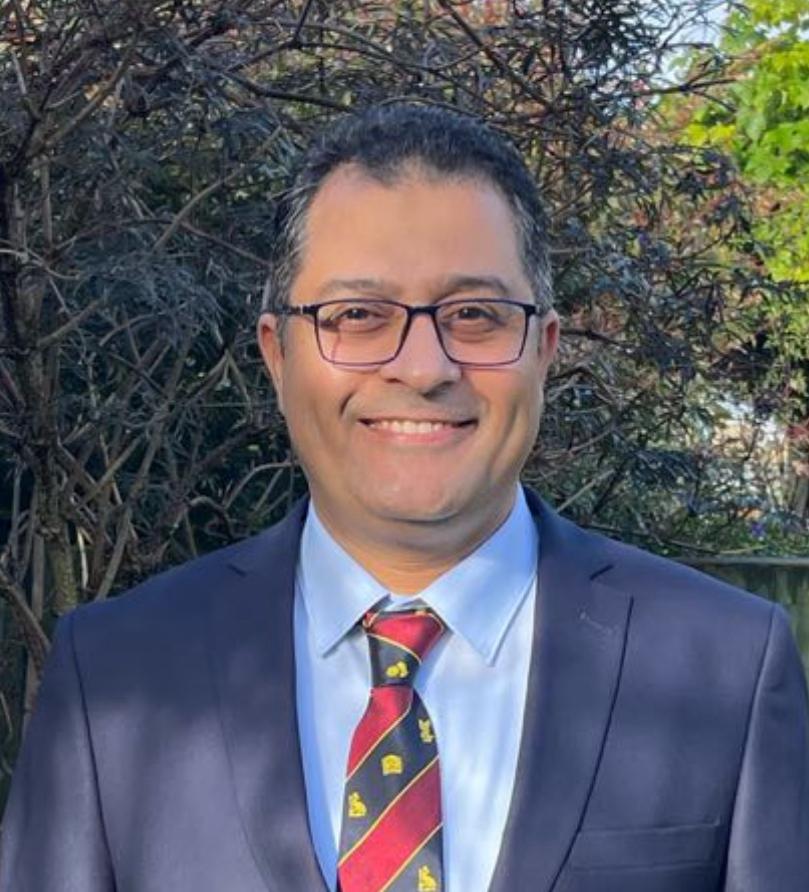
Ahmed Abdelaal
Salford Royal Neurosurgery Spine Fellowship, August 2022–August 2024. Current post: Neurosurgery Fellow in Manchester Clinical Neurosciences.“The Spine Surgery Fellowship in Manchester is an outstanding program within one of the largest spinal units, offering a high volume of diverse and complex cases. This fellowship provides a balanced mix of clinical and academic training, with a curriculum designed to ensure proficiency in a wide range of spinal surgeries. I have gained hands-on experience with advanced spinal navigation systems, neuro-monitoring, and specialized surgical approaches. With guidance from a diverse team of senior consultants, participants are exceptionally prepared for excellence in a wide range of complex spinal procedures, quality improvement and multidisciplinary spinal care. This fellowship is highly recommended for any surgeon aspiring to specialize in spinal surgery and achieve advanced expertise in the field.”
Ahmed Abdelaal
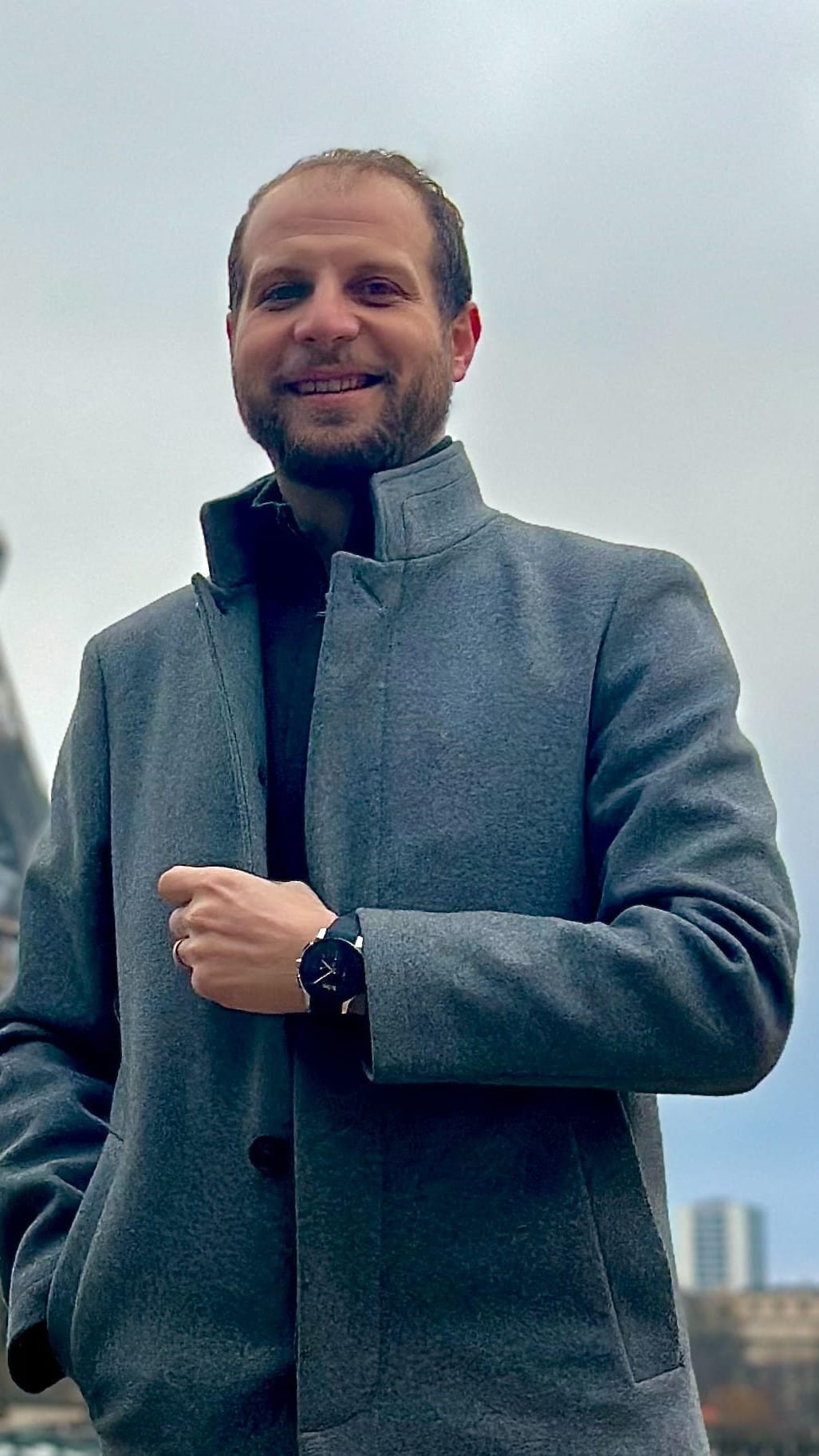
Ahmed Abougamil
Ahmed Abougamil
Ahmed Abougamil
Sheffield Senior Clinical Fellowship in Neurovascular Surgery, Sheffield Teaching Hospitals NHS Foundation Trust, August 2024-August 2025. Current post: Locum Consultant Skull base and Vascular, Hull Royal Infirmary. "The Sheffield Vascular Neurosurgery Fellowship provided an exceptionally supportive and well-mentored environment. Dealing with experienced vascular consultants, combined with routine exposure to complex aneurysm and cerebrovascular surgery, allowed a safe transition to independent practice. The fellowship was instrumental in preparing me for my first consultant post, both technically and professionally, fostering confidence and leadership in vascular neurosurgery.”Ahmed Abougamil
Alexander Rossdeutsch
Sheffield Senior Clinical Fellowship in Neurovascular Surgery, Sheffield Teaching Hospitals NHS Foundation Trust, August 2021-February 2023. Current post: Consultant Neurovascular Neurosurgeon, Queen’s Medical Centre, Nottingham. "The Sheffield RCS England senior fellowship in neurovascular surgery prepared me thoroughly for independent practice as a consultant neurovascular neurosurgeon. Not only was I able to learn and practice the tenets of aneurysm clipping, AVM resection and dural arteriovenous fistula disconnection in a gradated and supported manner until independently competent, but I was also able to practise the wider skills involved in consultant practice. This included chairing the weekly neurovascular MDT, engaging in service development projects and multicentre trials and running an independent clinic. This experience has helped me to provide the best care for patients in my consultant practice.”Alexander Rossdeutsch
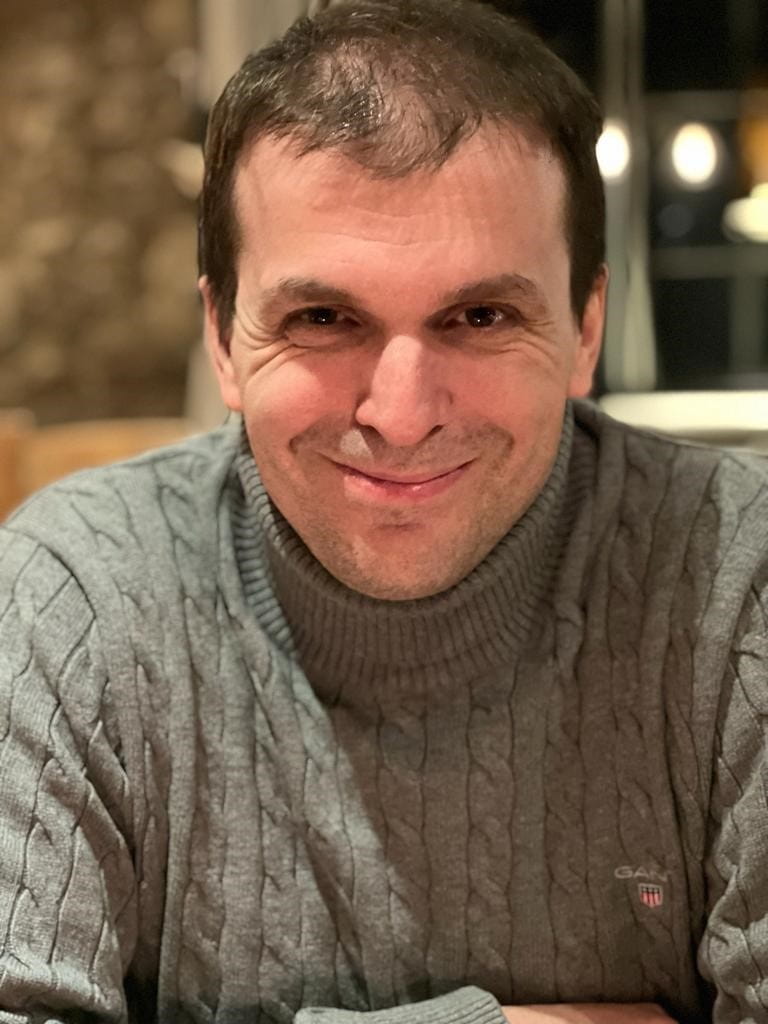
Alexandros Boukas
King's Neurosurgical Endoscopic Pituitary and Skull Base Fellowship, September 2021–September 2022. Current post: Locum Consultant Neurosurgeon, Oxford University Hospitals“The Kings College Hospital Skull Base and Pituitary Fellowship has been an invaluable experience, allowing me to develop and refine a comprehensive skill set in the management of pituitary and skull base pathologies. Through this fellowship, I have gained extensive experience in performing both endoscopic and microscopic skull base procedures. My surgical skills have been honed through hands-on practice and mentorship, which have been instrumental in ensuring high patient safety standards and excellent surgical outcomes. As a result, I am now well-equipped to provide high-quality, holistic care to my patients.”
Alexandros Boukas
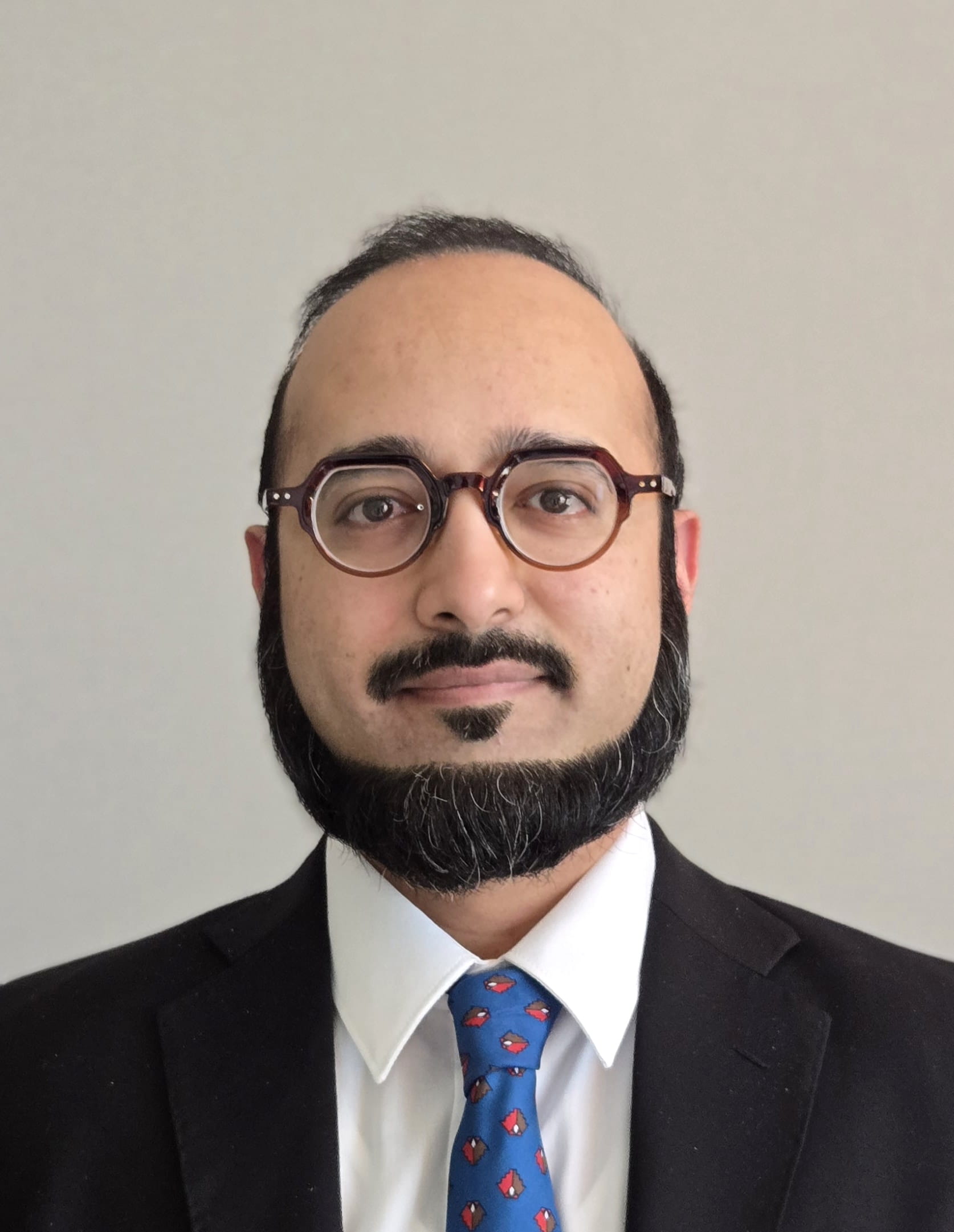
Ammar Natalwala
Queen Square Functional Neurosurgery Fellowship, The National Hospital for Neurology and Neurosurgery, Queen Square, London, UCLH Foundation Trust, Aug 2024–Aug 2025. Current post: Fellow in Neuro-oncology (St George’s Hospital, London). "The Queen Square functional neurosurgery fellowship was an excellent opportunity to learn the art of neuromodulation using deep brain stimulation as well as stereotactic lesioning procedures for tremor and chronic pain. At this high-volume centre, I enjoyed being a part of the MDT, learning case selection and programming post DBS. I was also able to refine my microsurgical skills via microvascular decompression cases. This fellowship provides an excellent foundation for future functional neurosurgeons.”Ammar Natalwala
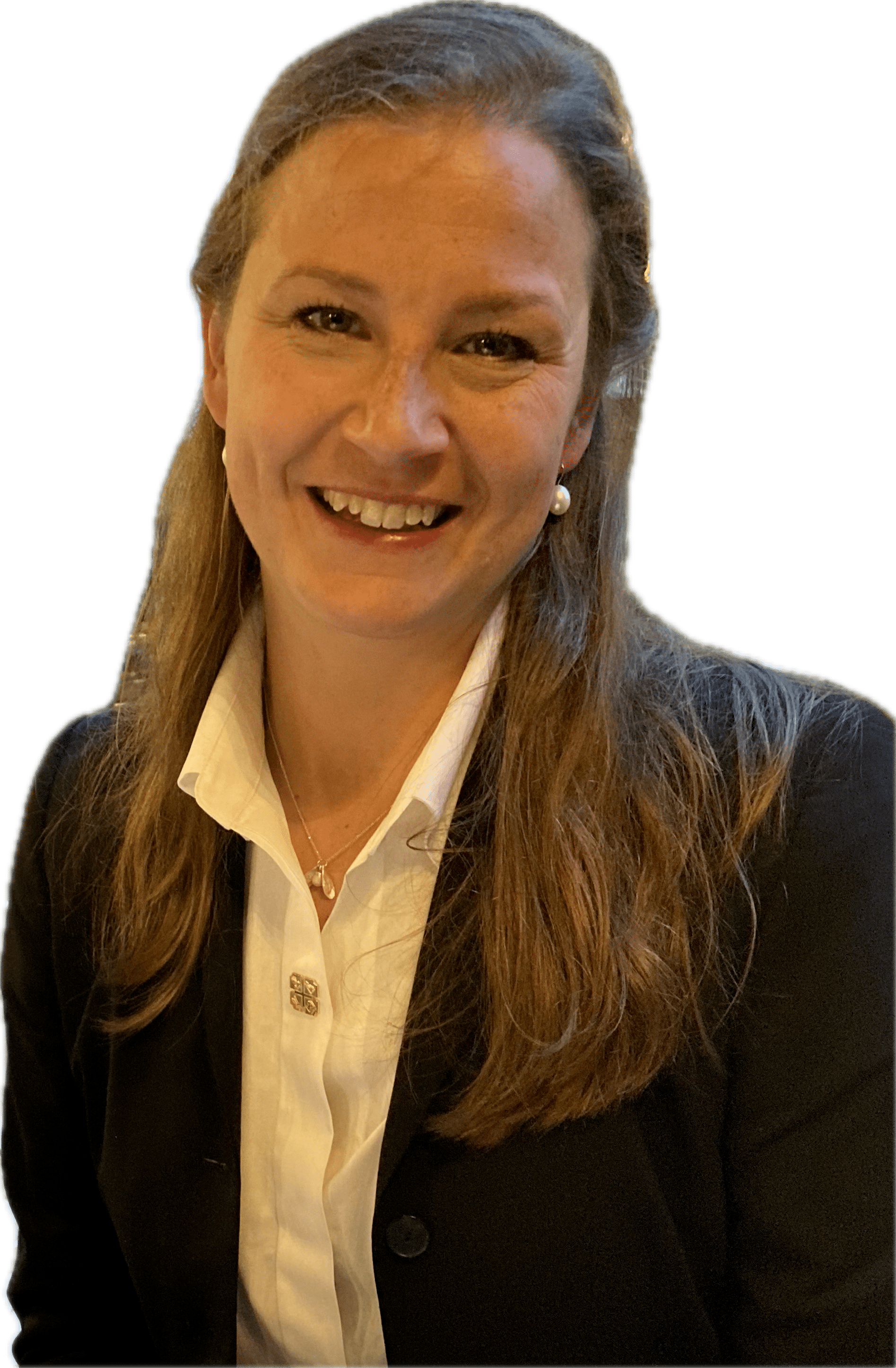
Anne Elserius
NHNN Pituitary Fellowship, National Hospital for Neurology and Neurosurgery, UCLH Foundation Trust, August 2022–July 2023. Current post: Locum Consultant Neurosurgeon at UHNM. "It has been a fantastic year as a pituitary fellow at NHNN, Queen's square. I have had the opportunity to run specialist clinics, operate on a very high number of pituitary cases with great teaching and coaching, take part in weekly MDT discussions and be part of an excellent team, all the way from pituitary CNS up to consultants. My patients will benefit from the specialist knowledge and surgical skills that I have acquired during my time at Queen's Square. I would highly recommend the fellowship for anyone with an interest in particular endoscopic pituitary surgery but also anterior skull base and endoscopic skills alone and I feel that it has prepared me well for my future job as a Neurosurgical consultant."Anne Elserius
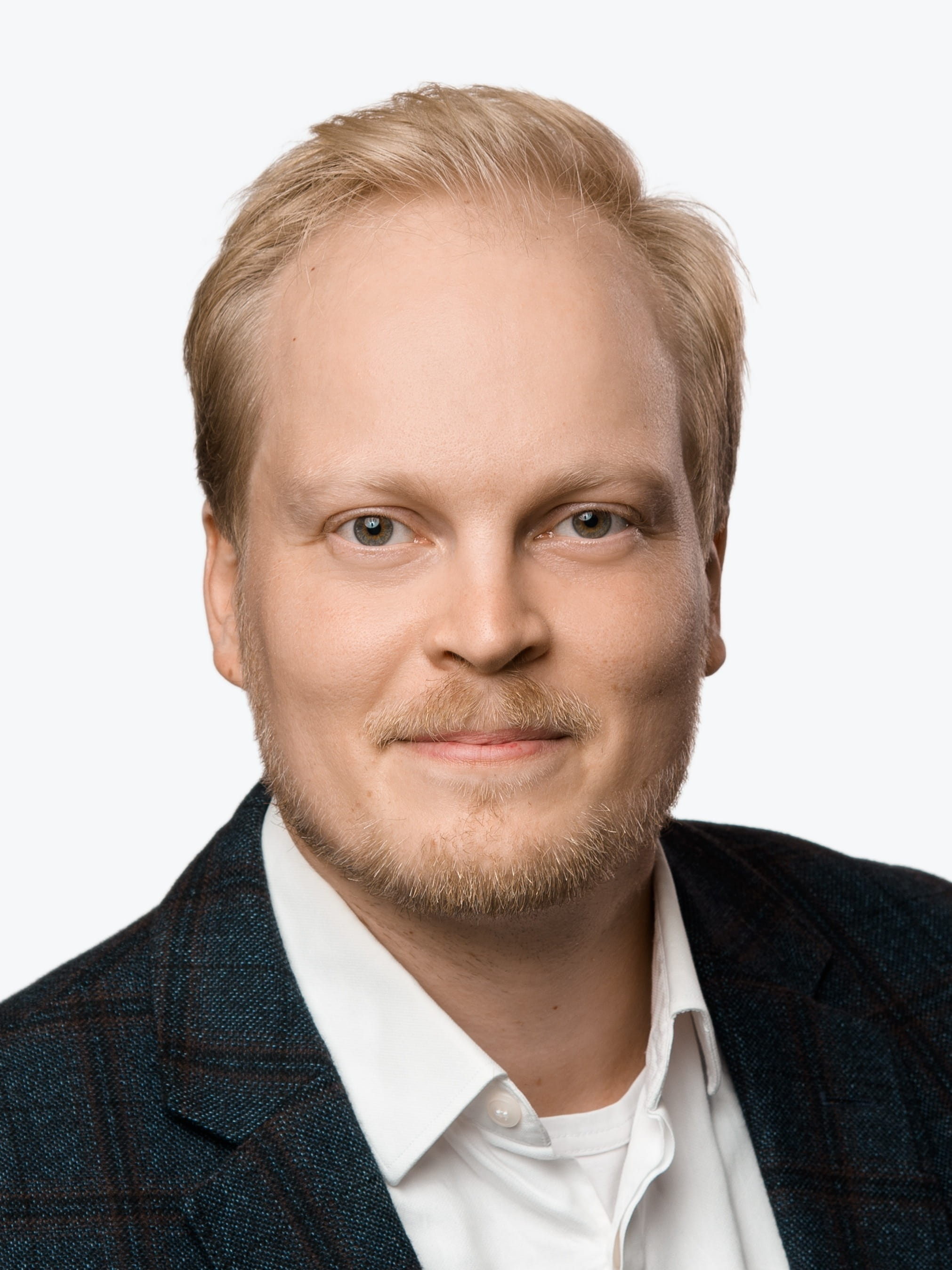
Antti Pekka Elomaa
Queen Square Neurovascular Fellowship, University College London Hospitals (UCLH), London, September 2023 – August 2024. Current post: Consultant Neurosurgeon with specialty interest in vascular and skull base. “The Queen's Square neurovascular fellowship with Ms Mary Murphy is exceptional. The hands-on experience encompasses all the critical aspects necessary to become a highly effective consultant in this field. The program is expertly managed and backed by an incredibly dedicated and skilled team. The National Hospital for Neurology and Neurosurgery stands out as a premier subspecialty hospital that prioritizes patient safety, translating into an extraordinary experience for clinicians and patients alike."Antti Pekka Elomaa
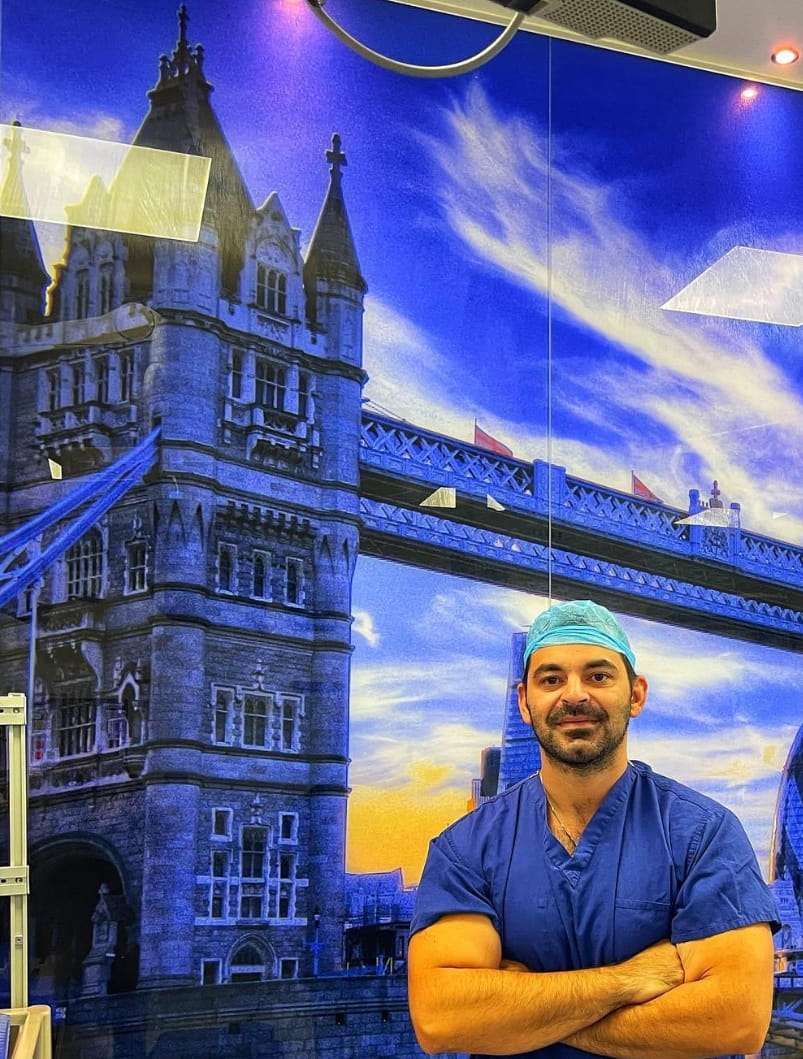
Christoforos Syrris
North East London & Essex Neuro-Oncology Fellowship, August 2023–August 2024. Current post: King's College Endoscopic Pituitary and Skull Base Fellow.“The Northeast London and Essex Neuro-Oncology Fellowship has been an exciting year in my training. The capacity of working in between two trusts, although it can be challenging, it offers great opportunities to work with different consultants and get exposed in a wide range of cases within the neuro- oncology subspecialty. This fellowship enabled me to deepen my operative and non-operative knowledge and skills and made me confident with awake craniotomies and challenging neuro-oncology cases. I would recommend it to colleagues with a subspecialty interest in neuro-oncology. The working environment is very friendly, respectful with mentors that can properly guide and inspire the relevant fellow."
Christoforos Syrris
Christoforos Syrris
King's College Hospital Neurosurgical Endoscopic Pituitary and Skull Base Fellowship, King's College Hospital NHS Foundation Trust, August 2024-August 2025. Current post: Locum Consultant Neurosurgeon, Pituitary and Skull Base Surgeon Southampton University General Hospital. "The King’s College Hospital Skull Base and Pituitary Fellowship has been an amazing life-changing experience in my career. The set up is more than exceptional with wide exposure in complex skull base cases, Endoscopic pituitary, Neurofibromatosis and facial pain. The consultants are great mentors and under their guidance I participated in 135 simple and extended endoscopic endonasal cases, 53 skull base meningiomas, 15 vestibular schwannomas, 20 microvascular decompression cases and more rare complex skull base pathology cases (chordomas, far lateral, combined petrosal approaches). The Fellowship necessitates close collaboration with relevant teams (endocrine, maxfax, ophthalmologist, ENT) and aside the operative skills and experience, provides wide and deep exposure in decision making, leadership, communication, cooperation and organisation. The end outcome often is that patients greatly benefited from the advanced surgical techniques and holistic care delivered through this collaborative approach. I will be forever grateful to the team for the support and guidance during this journey and I would totally recommend it for colleagues with endoscopic and skull base interest.”Christoforos Syrris

Christos Soumpasis
King's Neuro Surgical Oncology Fellowship, King's College Hospital, London, April 2022 – July 2023. Current post: Neurosurgical consultant in Neuro-Oncology, National Hospital for Neurology and Neurosurgery, UCLH London (Locum). “I had a phenomenal experience during my fellowship. I had the honour to work among excellent surgeons, such as Prof Ashkan, Mr Bhangoo, Mr Gullan, Mr Vergani and Mr Lavrador, who all have been amazing mentors and trainers. I gained valuable experience in complex oncology surgery, including awake craniotomies, intraoperative neuro-monitoring, minimal invasive parafascicular surgery and transcranial magnetic stimulation. There have been countless research opportunities in collaboration with international teams and participation in international courses/meetings. Most of all, I learned the importance of teamwork, which is the key to delivering world-class service to our patients. I could not recommend this fellowship more to anyone who wants to expand their horizons in neuro-oncology surgery.”Christos Soumpasis
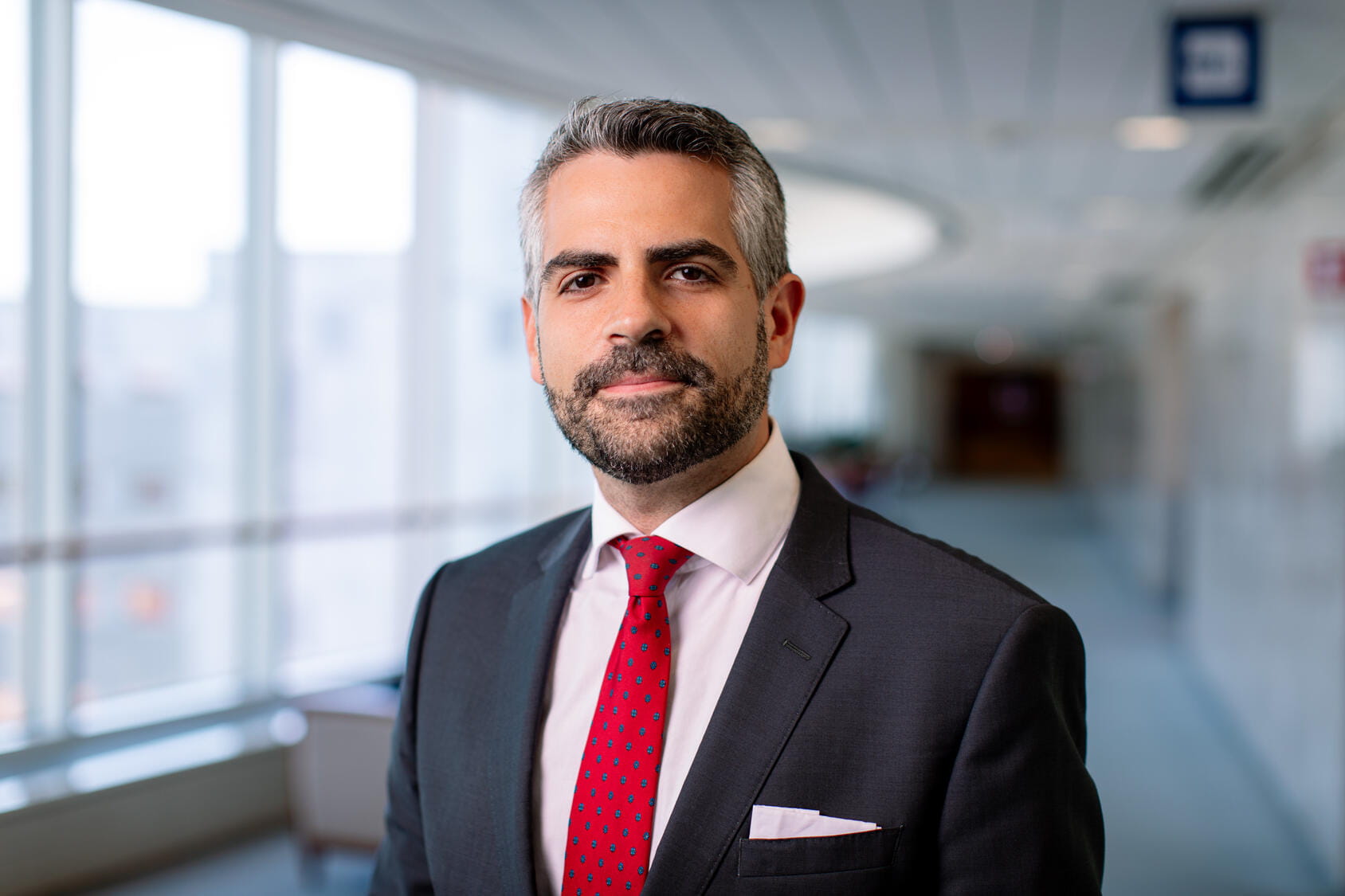
Damiano Giuseppe Barone
Walton Functional and Complex Epilepsy Fellowship, The Walton Centre for Neurology and Neurosurgery NHS Foundation Trust, Liverpool, August 2022–July 2023. Current post: Peripheral Nerve Surgery Fellowship (Mayo Clinic, Rochester, US)."The Walton Functional and Complex Epilepsy Fellowship stands unique, offering comprehensive exposure to the entire functional neurosurgery syllabus. Fellows train in a state-of-the-art setting, delivering cutting-edge surgical treatments across all functional neurosurgery domains at a high volume. The program balances outpatient clinics, theatre cases, and MDTs. Under the close supervision of Mr. Farah, training is accelerated, ensuring patient safety remains paramount during surgical instruction. By its conclusion, fellows gain independence in managing epilepsy surgery, functional neuro-oncology, deep brain stimulation, pain, and spasticity. The curriculum incorporates the latest technologies, including MRgFUS, LITT, iMRI, and advanced neuromodulation strategies. It also covers specialised surgeries like DREZ rhizotomy, amygdalohippocampectomy, insular glioma, MVDs and cordotomies. Designed for progressive learning, the fellowship guides trainees towards leadership in the field. Hosted at the Walton Centre, a recognized centre of excellence, it boasts one of Europe's largest neurosurgical programs. This globally sought after fellowship comes highly recommended for aspiring neurosurgeons."
Damiano Giuseppe Barone
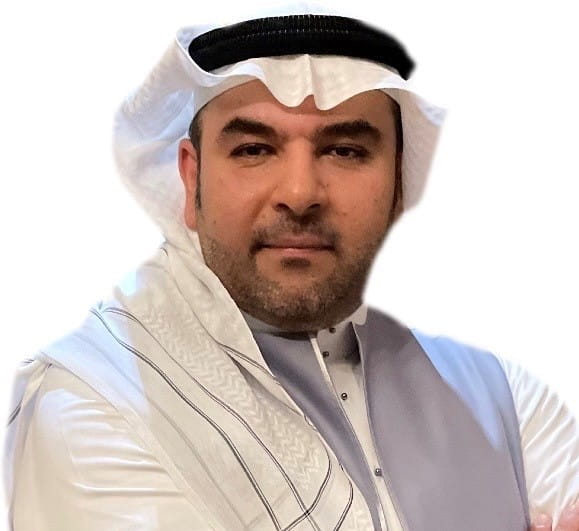
Faris Yaghmoor
King's Neurovascular Fellowship, April 2023–April 2024. Current post: Cerebrovascular and Endovascular Neurosurgeon.“Heritage and legacy, augmented with developed and genuine training standards, are the perfect recipe for an exceptional fellowship training program. King’s College Hospital in London indeed exemplifies such a culture. It has a long-standing history of training renowned physicians and elite surgeons from around the globe. The Neurovascular Surgery program is undoubtedly not an exception to this legacy. Surgical training transcends beyond skills cultivation to be an art acquisition. I was fortunate enough to be exposed to such an enriched environment during my time at King’s College Hospital fellowship. This exposure has enforced my training and empowered my capacity to serve my patients, and to further more practice such a traditional neurosurgical subspecialty with elegancy. It also aids in placing me among very few similarly dedicated experts worldwide."
Faris Yaghmoor
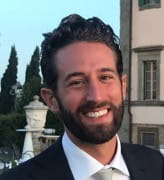
Francesco Marchi
Francesco Marchi
Jason Wing Hong Yuen
North Bristol Functional Neurosurgery Fellowship, North Bristol NHS Trust, August 2024-August 2025. Current post: Stereotactic and Functional Fellow, Toronto Western Hospital. "The fellowship focused on the training in robotic-assisted deep brain stimulation surgery. This not only includes the technical aspects of the surgery but also the pre- and post-operative care of the patients, as well as patient selection. Ms.Reiko Ashida was very experienced in the field and I managed to incorporate this experience into my neurosurgical residency as an enfolded fellowship, which is very helpful for my education. With the skills acquired, I believe it will benefit my future patients who suffer from devastating neurological conditions, such as Parkinson’s disease.”Jason Wing Hong Yuen
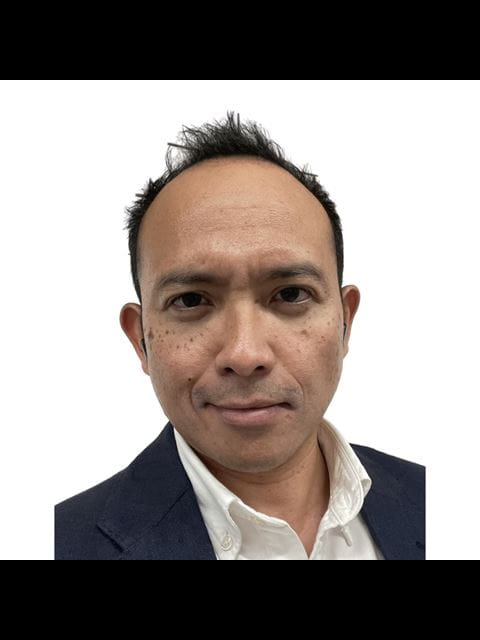
Mohd Azli Hisham Abdul Aziz
Barts Neurotrauma Fellowship, The Barts Health NHS Foundation Trust, London, August 2022–August 2023. Current post: Neurosurgery Neuro-Oncology Senior Clinical Fellow Specialist Registrar and Research Fellow Hull University Teaching Hospital (HUTH) NHS Trust.“The most important learning point from the Barts Neurotrauma Fellowship was to appreciate the decision-making process in the management of severe traumatic brain injury (TBI). In order to appreciate the decision-making process, the Neurotrauma Fellow needs to be present when the patient arrives at the Resuscitation area. The Neurotrauma Fellow is actively involved in the discussion of the patient on the weekly Neurotrauma Multiple Disciplinary Team (MDT) meeting, and this provides useful feedback on the life-saving neurosurgery operations performed which is most beneficial to the Fellow. These experiences would then benefit the future patients the Fellow shall be managing as a Consultant Neurosurgeon, especially regarding the decision to operate or not to operate on patients with severe TBI.”
Mohd Azli Hisham Abdul Aziz

Muhammad Waqas Saeed Baqai
North East London & Essex Neuro-oncology Fellowship, Trust Barts Health NHS Trust and Barking Havering & Redbridge NHS Trusts, August 2024-August 2025. Current post: RCS fellow of Functional Neurosurgery at North Bristol NHS Trust. "This fellowship has significantly enhanced my clinical knowledge and surgical skills in neuro-oncology, enabling me to provide more effective and evidence-based care for patients. The exposure to complex cases and multidisciplinary approaches has improved my decision-making and broadened my perspective on patient management. Overall, the experience has strengthened my ability to deliver high-quality care and contribute to better outcomes for patients.”Muhammad Waqas Saeed Baqai
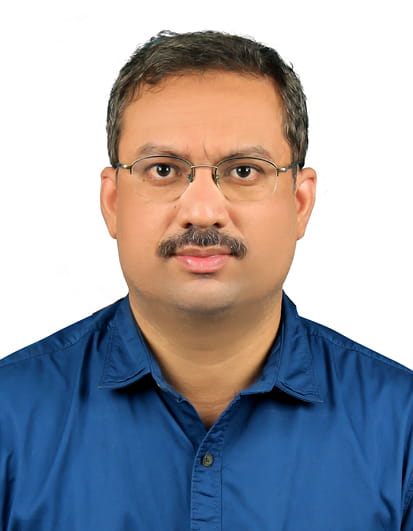
Muralikrishnan Padmanabhan
Muralikrishnan Padmanabhan
Neeraj Kalra
Leeds Neuro-Oncological Surgery Fellowship, Leeds Teaching Hospitals NHS Trust, August 2024 – August 2025. Current post: Clinical Instructor in Neuro-Oncology and Stereotactic Radiosurgery, Stanford Medicine, California. “The Leeds Neuro-Oncology fellowship provided an exceptional opportunity to master the complete care pathway for patients with brain tumours. I gained comprehensive experience across the subspecialty, utilising advanced technologies including awake craniotomy, robot-guided biopsy, fluorescence-guided resection, and pioneering in vivo pathology. Beyond the operating theatre, I took an active leadership role by running specialist clinics, chairing MDT meetings, and personally overseeing post-operative care. This fellowship offered the technical autonomy and high clinical volume needed to refine judgment in complex oncological decision-making, with over 200 operative cases and extensive clinic and MDT exposure. It enabled me to integrate surgical excellence with holistic patient management. By guiding patients from initial consultation through surgery and follow-up, I ensured continuity of care, optimised functional outcomes, and delivered compassionate, evidence-based treatment. The fellowship has fully prepared me for a Consultant Neurosurgeon career in Neuro-Oncology, and I am deeply grateful to the Leeds Neurosurgery department for this outstanding opportunity."Neeraj Kalra
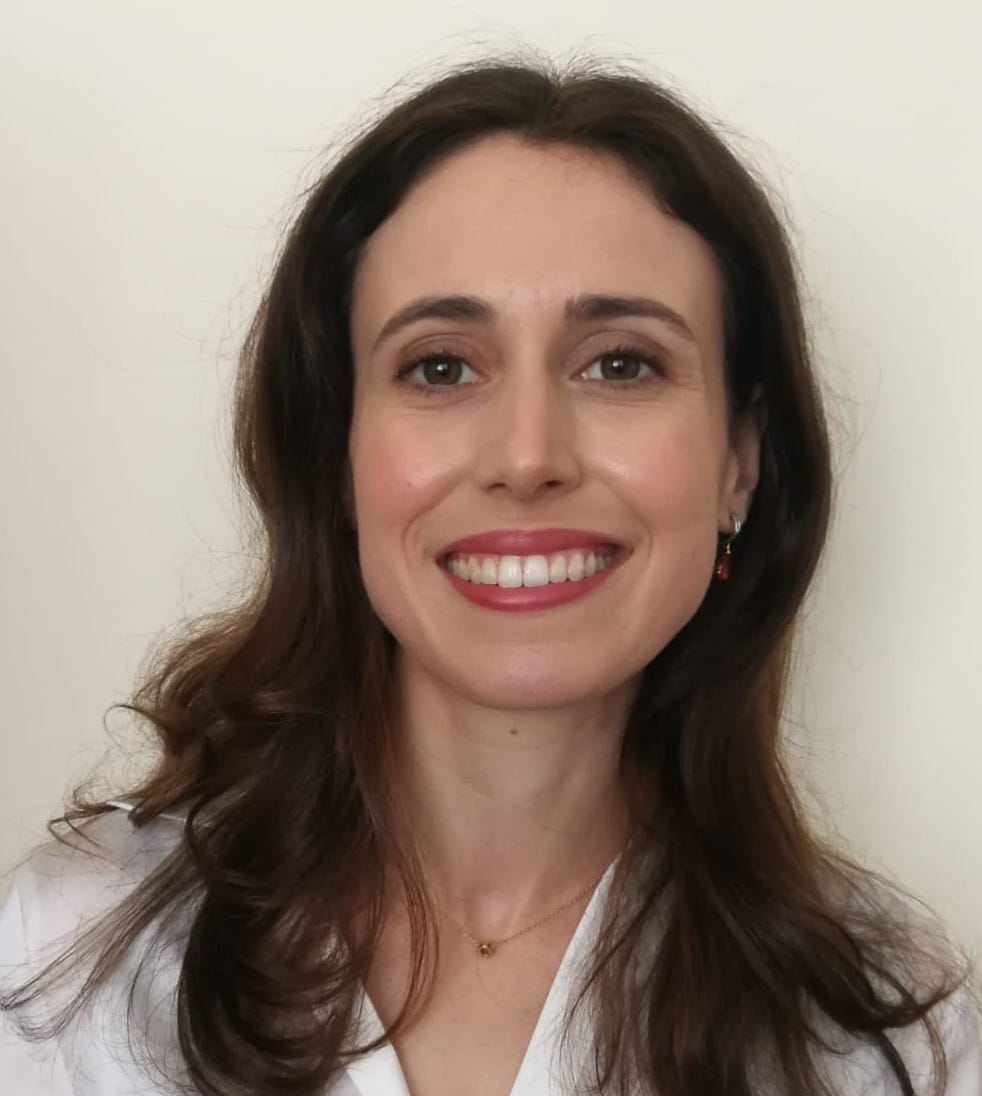
Olga Parras Granero
Functional Neurosurgery Fellowship, National Hospital for Neurology and Neurosurgery, Queen Square NHS Foundation Trust, October 2020–September 2022. Current post: Neurosurgery consultant at University Hospital Araba, Basque Country, Spain.“It has been a great honour to have been part of the Functional team at Queen Square. Professor Zrinzo, Mr Akram and Mr Hyam have not only been great mentors, but role models to follow in many years to come in my practice. Their ability to convey their deep knowledge of all aspects of the specialty, as well as their constant support throughout my training has made this fellowship an exceptional experience and a robust basis for my future as a functional neurosurgeon. I am also deeply grateful to the whole department for having taught me the skills necessary for an optimal patient selection for surgery of movement and psychiatric disorders as well as their post-surgical follow-up, avoidance of complications and the management of facial pain. Their dedication, teamwork and excellence are the signs of the identity of this Fellowship.”
Olga Parras Granero
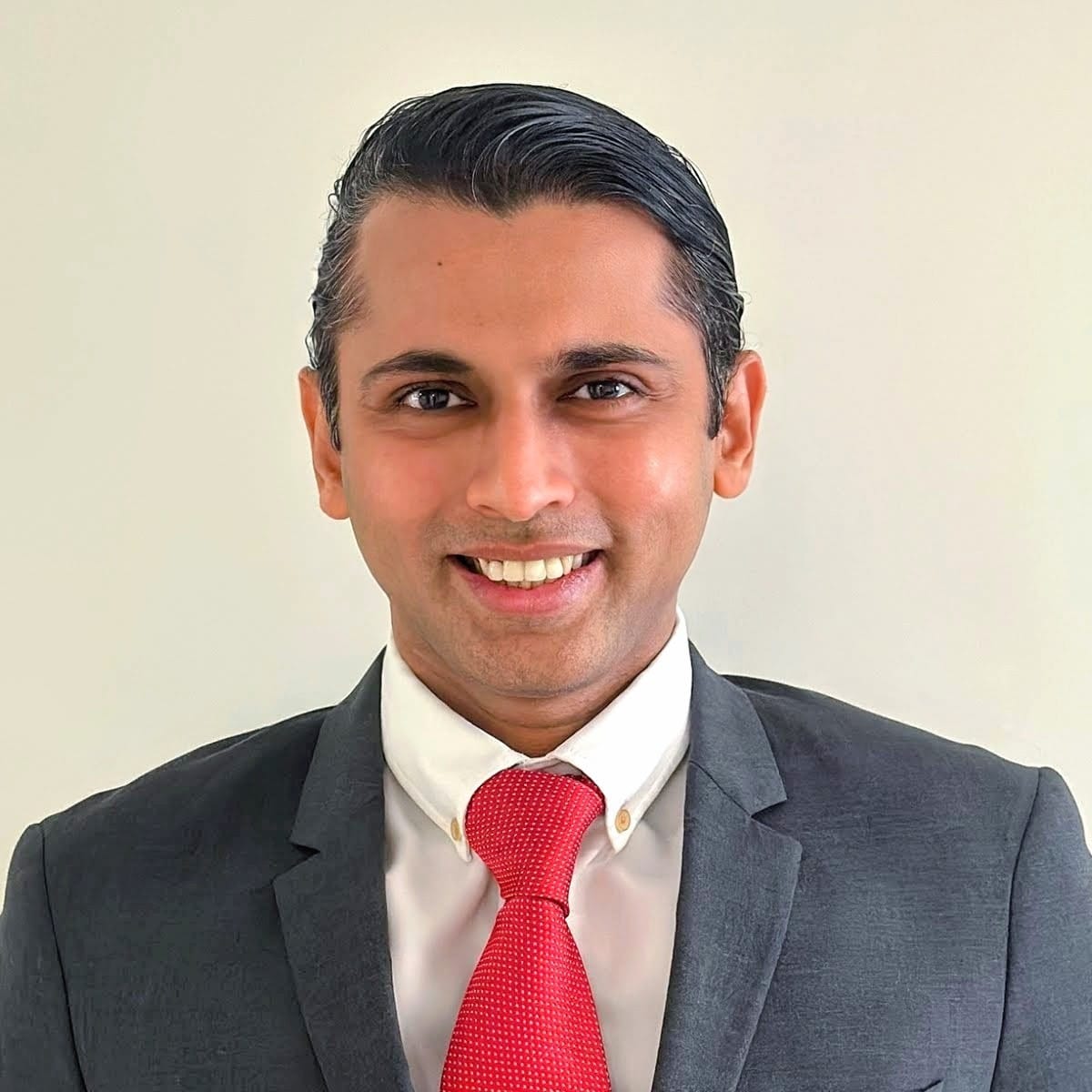
Ranjit Rangnekar
Ranjit Rangnekar
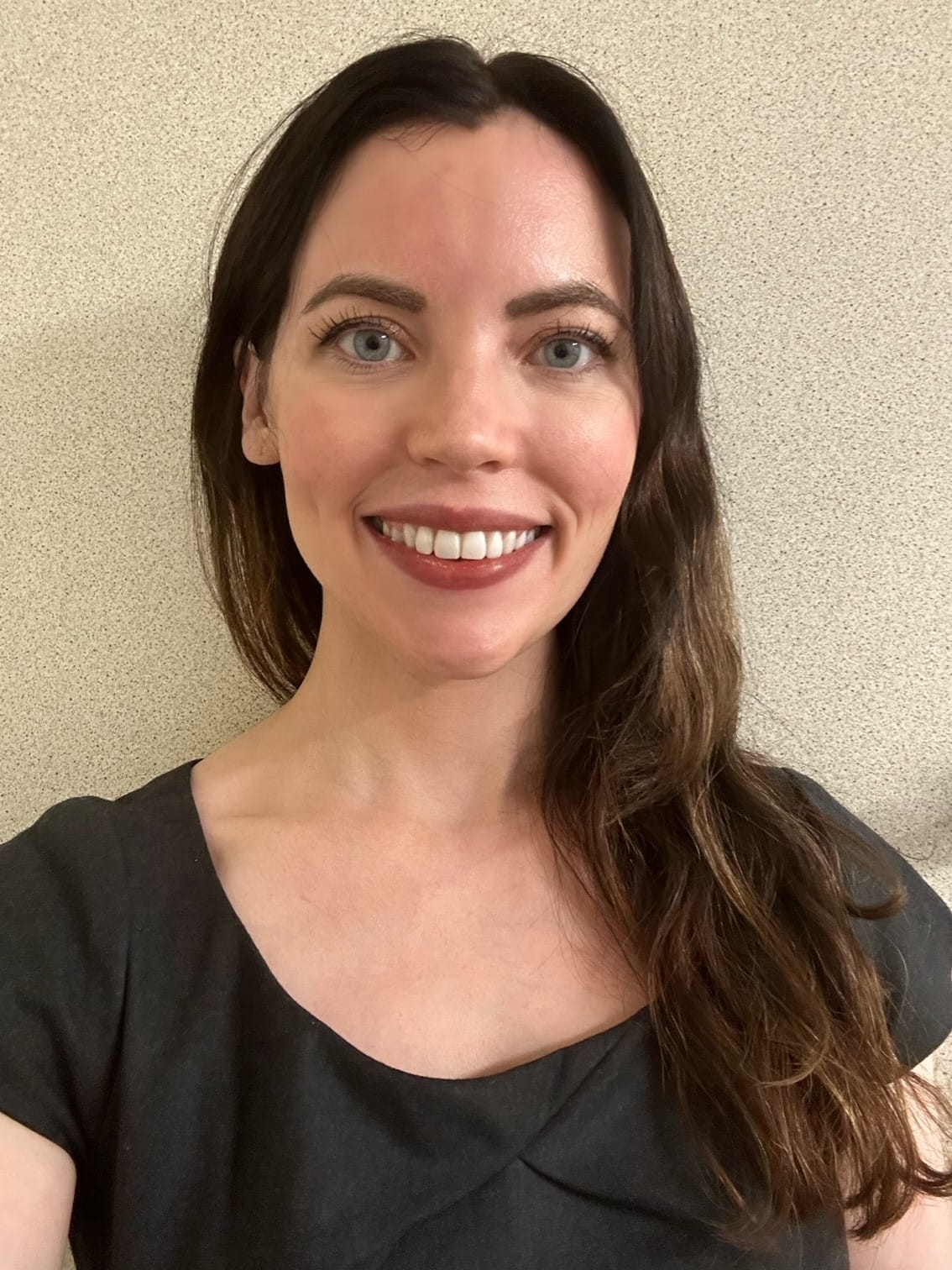
Roisin Finn
NHNN Complex Epilepsy Fellowship, University College London Hospitals NHS Foundation Trust, Aug 2021–Aug 2023. Current post: RCS England Senior Oncology Post CCT Fellow - Wessex."I had an absolutely phenomenal learning experience. Miss Miserocchi and Professor McEvoy are not just world class epilepsy and oncological surgeons, they are spectacular trainers and mentors. This fellowship went way beyond any exceptions, it covers the breadth of epilepsy and oncology neurosurgery practice, from complex awake resections and SEEG to gamma knife practice. The operative exposure is immense, as well as the opportunities for research collaborations within a very well-established international team. I couldn’t recommend this fellowship more highly to set one up for consultant practice. Hands down it has been the highlight of my career to date."
Roisin Finn
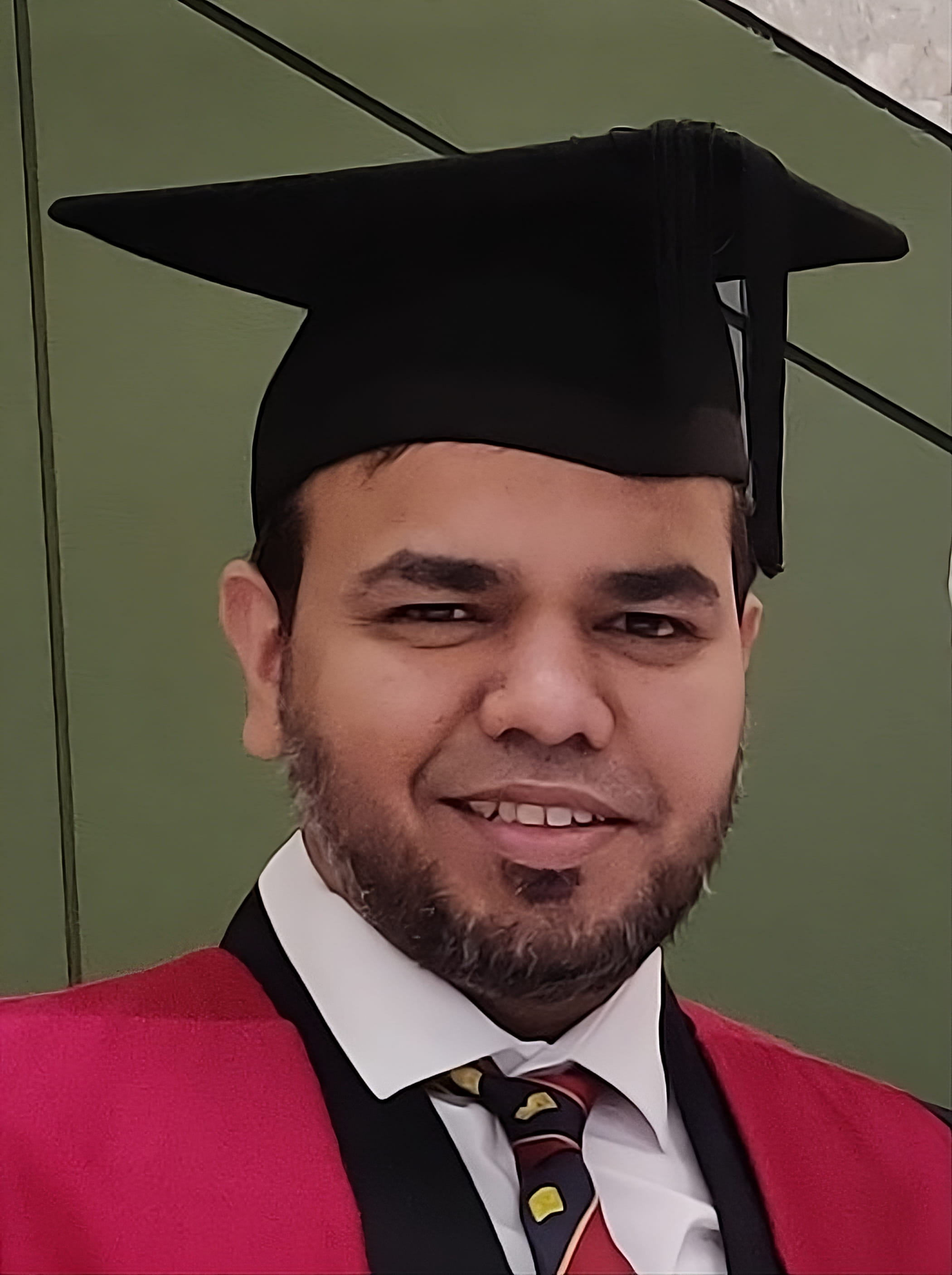
Salman Shaikh
Salford Royal Neuro-oncology Surgery Fellowship, Salford Royal NHS Foundation Trust, Aug 2022–Aug 2023. Current post: Locum Consultant Neurosurgeon, Queen Elizabeth University Hospital, Glasgow. "I have been fortunate enough to complete 2 RCS Fellowships consecutively, working at Leeds General Infirmary and Salford Royal Hospital. The Leeds Fellowship helped me gain surgical expertise from an ENT and Neurosurgery perspective. The emphasis on teaching percolates through to the training of Fellows as well. Apart from being involved in every Endoscopic Skullbase case, I was also able to complete QIP’s related to perimetry assessments and MRI scans for pituitary tumours.As the Neuro-oncology Fellow in a busy firm at Salford, there was ample exposure to the entire gamut of cases and adjuncts. I also got the opportunity to hone my Leadership & Management skills by being the firm’s rota coordinator and Fellow representative of the Trust.
Both these Fellowships have enriched my skills in surgical techniques, decision making and perioperative care. I am extremely confident in the high quality of treatment I can now offer my patients."
Salman Shaikh
